Inequalities Seminar Series
Tuesdays, 12.30 to 1.30pm
The Inequalities Seminar Series at the International Inequalities Institute is a venue for scholars from LSE and beyond to present their innovative work on social and economic inequality. The seminars are open and free to all.
Upcoming Inequalities Seminars
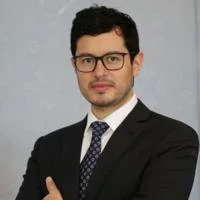
People reject unfairness but normalise inequality
Part of the Inequalities Seminar SeriesTuesday 3 March 2026, 12.30 to 1.30pm. In-person and online seminar. LSE Clement House 2.05.
Speaker:
Dr Mario D. Molina, Assistant Professor, Social Research and Public Policy programme, NYU Abu DhabiEconomic inequality is rising worldwide, yet it remains widely tolerated despite people's strong aversion to unfairness and rejection of excessive disparities. Why do people accept the very inequalities they claim to oppose? Existing accounts hold that inequality is acceptable when it results from fair processes and argue that tolerance of inequality reflects misinformation or limited awareness of the systemic inequities that produce it. We propose an alternative explanation: people use moral judgment to assess procedural fairness but rely on experienced inequality to set standards for acceptable disparities. We test this account in a large pre-registered online experiment ($N=3{,}335$) using a fully crossed factorial design that manipulated opportunity inequality, outcome inequality, and social position in a competitive game. The results reveal a stark dissociation: participants consistently deemed unequal opportunities unfair, yet their tolerance for disparities was largely unaffected by how opportunities were distributed. Instead, individuals normalized the level of inequality they personally experienced, adopting it as a baseline for acceptable outcomes, irrespective of procedural fairness.
Register to attend in-person
Register to attend online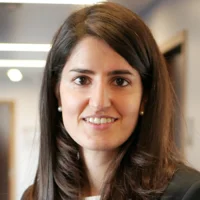
Private capital markets and inequality
Part of the Inequalities Seminar SeriesTuesday 10 March 2026, 12.30 to 1.30pm. In-person and online seminar. LSE Centre Building 2.04.
Speaker:
Dr Clara Martínez-Toledano, Assistant Professor of Financial Economics, Imperial College London; Wealth Distribution and Political Cleavages Coordinator, WID.worldThis paper studies the relationship between the growth in private capital markets and the rise in economic inequalities over the last two decades in the U.S. First, we document that the share of financing raised by early-stage companies from U.S. high-net-worth individuals (HNWIs) tripled from 2004 to 2022. Second, exploiting both company- and state-level variation in exposure to the expanded federal capital gains tax exclusion on qualified small business stock (QSBS), we find that QSBS-eligible companies’ probability of staying private increased by 3.6 percentage points, and that the average income gap between HNWIs and other income earners increased by 7.2%. Third, we show that this rise in income concentration appears to have been driven by HNWIs’ excess returns on their early-stage investments relative to public stock market returns. Finally, using counterfactual simulations, we find that HNWIs’ excess returns on these investments accounted for 28% of the growth in the top 0.5% wealth share between 2010 and 2022.
Register to attend in-person
Register to attend online
Mapping the industrial revolution: a micro-level analysis of job creation and loss in Victorian Britain
Part of the Inequalities Seminar SeriesTuesday 17 March 2026, 12.30 to 1.30pm. In-person and online seminar. Vera Anstey Room, LSE Old Building.
Speaker:
Dr Hillary Vipond, Postdoctoral Fellow in the Transforming Economies team, Complexity Science Hub, Vienna and Atlantic Fellow for Social and Economic EquityThis paper maps job creation and loss during Britain’s Second Industrial Revolution to examine how technological change reshaped access to opportunity. Using full-count census microdata from 1851 to 1911, I construct a new, task-level classification of occupation to track the emergence of new jobs and the decline of traditional work across industries and local labor markets. Because nineteenth-century technological change was not strongly skills-biased, access to new and emerging occupations may have been mediated primarily by family background, gender, or geographic proximity to firms adopting new technologies. Linking micro-level job dynamics to patterns of social mobility, the paper documents the distributional consequences of creative destruction.
Register to attend in-person
Register to attend online
The rising tide: floods as drivers of income and welfare inequality in South Africa
Part of the Inequalities Seminar SeriesTuesday 24 March 2026, 12.30 to 1.30pm. In-person and online seminar. LSE Centre Building 2.04.
Speakers:
Dr Annalena Oppel, Research Fellow, Atlantic Fellows for Social and Economic Equity, LSE
Dr Enrico Nichelatti, Postdoctoral Researcher, Department of Social Sciences, University of LuxembourgRegister to attend in-person
Register to attend online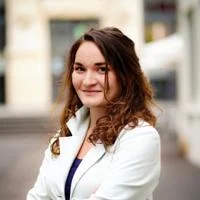
Death and taxes: inheritance tax planning and unexpected mortality
Part of the Inequalities Seminar SeriesTuesday 31 March 2026, 12.30 to 1.30pm. In-person and online seminar. LSE Marshall Building 2.06.
Speaker:
Dr Jeanne Bomare, Research Officer, LSE IIIWe use the first wave of the COVID-19 pandemic as a natural experiment to identify the scale and mechanisms of inheritance tax planning in the United Kingdom. By providing an exogenous shock to mortality, the pandemic suddenly truncated the time available for anticipatory planning. Linking administrative inheritance tax returns to high-frequency mortality data, we compare the estates of individuals who died unexpectedly during the pandemic with those of observationally similar decedents from pre-pandemic years.
We find that unexpected deaths are associated with significantly larger reported estates - increasing the average estate by approximately £350,000 - and a 5 percentage point rise in effective tax rates. Our results indicate that inheritance tax planning reduces effective liabilities by at least 55 percent, representing an annual revenue loss of £3-4.5 billion. We show that inter-vivos transfers, rather than within-estate portfolio restructuring, are the primary planning margin. These findings demonstrate that the ‘seven-year rule’ for gifts is a first-order determinant of the effective tax base and suggest that revenue-raising reforms must prioritize the treatment of lifetime transfers.
Register to attend in-person
Register to attend online
Previous Inequalities Seminars
Modern labour markets: an employment-capability framework for the future of work
17 February 2026
Speaker:
Professor Kirsten Sehnbruch, Distinguished Policy Fellow, LSE III
On a theoretical level, the capability approach can be applied on three different ‘levels’: First, as a framework of thought, second, as a critique of other approaches to welfare evaluation, and third as a formula to make interpersonal comparisons of welfare (Robeyns, 2000). For Sen, their order of importance is precisely this ranking. Arguments about how the capability approach can serve to frame a debate on employment from these perspectives continues to be under-formulated. This theoretical paper therefore develops an employment-capability framework; relates it to other theoretical approaches to labour markets; and discusses how it can be used to undertake interpersonal comparisons.
Examining poverty reduction and welfare through the lens of empathy and dignity
10 February 2026
Speaker:
Dr Keetie Roelen, Senior Research Fellow in Poverty and Social Protection and Co-Deputy Director at the Centre for the Study of Global Development (CSGD), Faculty of Wellbeing, Education and Language Studies (WELS), Open University
In this seminar, Keetie offers a critical interrogation of anti-poverty and welfare policies through the lens of empathy and dignity. Based on her book The Empathy Fix. Why Poverty Persists and How To Change It, she explores the double standards and widespread myths that underpin attitudes to poverty, and lead to responses that serve to police and punish the poor. Drawing on research and examples from around the world, Keetie unpacks notions of behavioural change, meritocracy, self-reliance within current anti-poverty and welfare policy, and what policy options may offer more empathetic and dignified alternatives.
Residential diversity in young adulthood and later life attitudes toward immigration
3 February 2026
Speaker:
Dr Haley McAvay, Associate Professor of Sociology, LSE Department of Sociology
Inequalities in residential environments have received a lot of attention in understanding the appeal of anti-immigration parties across advanced democracies in recent years. This paper explores the long-term association between neighbourhood context in adolescence and attitudes towards immigration later in life drawing on a cohort study from the UK (Next Steps) matched with census data. Drawing on the premises of the impressionable years hypothesis and contact theory, we posit that as a space of socialisation, the local area that one experienced in adolescence is influential to the development of immigration attitudes.
Intergenerational income mobility and assortative mating in Sweden
27 January 2026
Speaker:
Professor Markus Jäntti, Professor of Economics, Stockholm University
(Joint work with Jesper Roine of the Stockholm School of Economics)
Intergenerational income mobility is mostly studied by examining the association of fathers' and sons' (long-run) labour earnings. Broadening from this narrow focus, we demonstrate that in Sweden, both the level and trend in intergenerational mobility varies by both population -- father/mother/both parents against sons/daughters/all offspring -- as well as income concept. We explore the welfare implications of both inter- and intragenerational mobility and, once family incomes have been introduced, assortative mating. We further conduct some explorative analysis of policy changes with potential to affect patterns of assortative mating.
Inequality values as excess shares
20 January 2026
Speaker:
Professor Anthony Shorrocks, Visiting Professor, LSE III
Inequality researchers are severely hampered by the inability to interpret inequality values in an intuitive way. Yet a simple solution has been overlooked. If a resource is shared between one rich person and n equally poor people, the value of the Gini coefficient corresponds to the share of the rich person over and above their “fair share”. This reinterpretation in terms of excess shares may be regarded as applying a new measuring scale or “metric” to Gini values. The same procedure can be applied to other inequality measures, offering the prospect of reviving interest in families of inequality indices which have fallen out of favour over the past 50 years despite their attractive properties.
Poverty without poverty line
Tuesday 21 January 2025
Speaker: Dr Olivier Sterck, Associate Professor, University of Antwerp & University of Oxford
Watch the event recordingPolitical economy of urban land grabbing in India: local developers, fragmented development and perils of governance
Tuesday 28 January 2025
Speaker: Dr Ajay Kumar-Gautam, Sir Ratan Tata Visiting Fellow, LSE III
Watch the event recording(De)Mobilizing effects of misinformation: evidence from Brazil
Tuesday 4 February 2025
Speaker: Dr Fred Batista, Associate Professor, Department of Political Science and Public Administration University of North Carolina, Charlotte
Watch the event recordingPOLINEQUAL: Exploring representations of economic inequality and their implications in three European welfare regimes
Tuesday 11 February 2025
Speakers: Professor Sonja Zmerli, Professor, Sciences Po Grenoble - UGA; Dr Daniel Walsh, Postdoctoral Research Fellow, Sciences Po Grenoble - UGA
Watch the event recordingThe historical incarceration penalty in the U.S.
Tuesday 18 February 2025
Speaker: Dr Ellora Derenoncourt, Assistant Professor of Economics at Princeton University
Using microdata and microsimulations to estimate historical income distributions at high frequency: Italy, 1861-2021
Tuesday 4 March 2025
Speaker: Professor Giovanni Vecchi, Professor of Economics, University of Rome Tor Vergata
Watch the event recordingLeaving Legacies and Liabilities: The Distribution of Wealth at Death
Tuesday 11 March 2025
Speaker: Dr Franziska Disslbacher, Assistant Professor, Research Institute Economics of Inequality and the Department Socioeconomics, WU Vienna University of Economics and Business
Watch the event recordingLived experiences of financial hardship and perspectives on inequality: can Natural Language Processing (NLP) techniques assist in the qualitative analysis of large sets of biographical interviews?
Tuesday 18 March 2025
Speaker: Professor Jane Elliott, Professorial Research Fellow, LSE III
Watch the event recordingHope for Changemakers: Evidence and Narratives
Tuesday 25 March 2025
Speaker: Dr Irene Guijt, Head of Evidence and Strategic Learning, Oxfam GB
Watch the event recordingArt World Ethnography or How to study VIPs when you are not one
Tuesday 1 April 2025
Speaker: Dr Leili Sreberny-Mohammadi, LSE Fellow in Culture and Society, Department of Sociology
Equity vs Efficiency of Indirect Taxation in India
Tuesday 6 May 2025
Speaker: Dr Pierre Bachas, Economist, World Bank Development Research Group
Watch the event recordingNarratives of Inequality
Tuesday 13 May 2025
Speakers: Professor Joan Costa-i-Font, Professor of Health Economics, LSE Department of Health Policy and co-leader of the Perceptions of Inequality research programme, LSE III; Professor Frank Cowell, Professor of Economics, LSE Department of Economics and co-leader of the Perceptions of Inequality research programme; Jakob Dirksen, PhD candidate, LSE Department of Social Policy
Patrons, Protégés, and Peers: Workplace Mechanisms of Intergenerational Inequality
Tuesday 27 May 2025
Speaker: Dr Per Engzell, Associate Professor of Sociology at UCL Social Research Institute
Watch the event recordingCumulative exposure to climate risks in Europe: A multidimensional framework for present and future vulnerabilities
Tuesday 3 June 2025
Speaker: Dr Amaia Palencia Esteban, Research Officer, LSE III
Jobless Industrialization
Tuesday 10 June 2025
Speaker: Professor Marcela Eslava, Professor of Economics, Universidad de Los Andes
Watch the event recordingLocal versus National: The effect of income (mis)perceptions on inequality beliefs and preferences
Tuesday 30 September 2025
Speaker: Dr Katy Morris, Postdoctoral Fellow, Swedish Institute for Social Research (SOFI), Stockholm University.
Watch the event recordingStructural Changes and Intergenerational Educational Mobility during the Twentieth Century
Tuesday 7 October 2025
Speaker: Dr Mobarak Hossain, Assistant Professor, Department of Social Policy, LSE
Very simple models of economic inequality and how to solve it
Tuesday 14 October 2025
Speaker: Professor Jean-Paul Faguet, Professor of the Political Economy of Development, LSE
Watch the event recording(Un-)Persistent Conflict? The Effects of First Globalization Coffee Boom in Colombia
Tuesday 21 October 2025
Speaker: Daniel Sanchez-Ordoñez, PhD Candidate, Paris School of Economics
How do social policies unequally restrict reproduction among specific populations?
Tuesday 28 October 2025
Speaker: Dr Laura Sochas, Chancellor's Fellow and Leverhulme Early Career Research Fellow, University of Edinburgh
Watch the event recordingIntergenerational Income Mobility around the World: A Meta-Analysis
Tuesday 11 November 2025
Speaker: Dr Louis Sirugue, Research Officer, LSE III
Inequalities Seminar - Is Poverty Decline in India Falterering?
Tuesday 18 November 2025
Speaker: Professor Peter Lanjouw, Professor of Development Economics, Vrije Universiteit Amsterdam
Watch the event recordingDiscrimination Law and the Family
Tuesday 25 November 2025
Speaker: Professor Tarun Khaitan, Professor (Chair) of Public Law, LSE Law School
Watch the event recordingLocal Cost of Living and the Geography of Inequality: Evidence from Spain
Tuesday 2 December 2025
Speaker: Dr Beatriz Jambrina Canseco, Research Officer, Oxford Poverty and Human Development Initiative
Watch the event recordingBillionaire Responses to the Recently Increased Appetite to Tax their Wealth
Tuesday 9 December 2025
Speaker: Professor Marlies Glasius, Professor in International Relations, Department of Politics, University of Amsterdam
Watch the event recordingDo low-quality jobs pay more? Poor-Quality Employment in Europe
Tuesday 16 January 2024
Speakers: Mauricio Apablaza, Universidad del Desarrollo, Chile; Gaston Yalonetzky, University of Leeds
Inequality measurement for bounded variables
Tuesday 23 January 2024
Speaker: Suman Seth, Leeds University Business School
Watch the event recordingHow Do Inheritances Shape Wealth Inequality? Evidence from India
Tuesday 30 January 2024
Speakers: Kalaiyarasan Arumugam, Assistant Professor, Madras Institute of Development Studies, Chennai; Vikash Vaibhav, Assistant Professor, Jindal School of Liberal Arts and Humanities (JSLH)
Watch the event recordingCultural Capital and Access to Opportunity in India
Tuesday 6 February 2024
Speaker: Sam Asher, Associate Professor of Economics & Public Policy, Imperial College Business School
Watch the event recordingThen and Now: How Neighbourhood Deprivation in Youth Influences Attitudes towards Inequality
Tuesday 13 February 2024
Speaker: Franco Bonomi Bezzo, Post-Doctoral Researcher, La Statale, University of Milan
Watch the event recordingMore Unequal or Not as Rich? Dilemmas over Distributional National Accounts for Latin America
Tuesday 27 February 2024
Speaker: Dr Marc Morgan, Research and Teaching Fellow, University of Geneva (UNIGE)
Watch the event recordingUnequal Estate Division for Wealth Perpetuation: Portfolios, Primogeniture, and Patrilineality
Tuesday 5 March 2024
Speaker: Dr Nhat An Trinh, Research Officer, Institute for New Economic Thinking & Department of Social Policy and Intervention, University of Oxford
Watch the event recordingInequality of Opportunity and Investment Choices
Tuesday 12 March 2024
Speaker: Michelle Brock, Associate Director, Senior Research Economist, Office of the Chief Economist at European Bank for Reconstruction and Development (EBRD)
Watch the event recordingBehavioral responses to wealth taxation: evidence from a Norwegian reform
Tuesday 19 March 2024
Speaker: Roberto Iacono, Associate Professor in Economics and Social Policy at the Norwegian University of Science and Technology
The Crypto-Utopian Occult Revival and Anti/Fascism
Tuesday 26 March 2024
Speaker: Erica Lagalisse, Visiting Fellow, LSE III
Watch the event recordingPlus ça change? Continuity and change in social attitudes and worldviews in 21st century Brazil
Tuesday 7 May 2024
Speakers: Dr Fabrício Mendes Fialho, Research Fellow, LSE III; Alberto C. Almeida, Director, Brasilis Institute
Watch the event recordingWelfare regime hybridisation and social inequalities
Tuesday 14 May 2024
Speaker: Dr Zahid Mumtaz, LSE Fellow, LSE Department of Social Policy
Watch the event recordingThe Gini and the tonic: Understanding the dynamics of inequality measurement
Tuesday 21 May 2024
Speaker: Professor Sanghamitra Bandyopadhyay, Professor of Development Economics and the Deputy Director of the Centre for Globalisation Research, Queen Mary University of London and Visiting Professor, LSE III
Watch the event recordingMultiple oppressions and resistances in spaces of inequality: A study from the indigenous landscapes of eastern India
Tuesday 8 October 2024
Speaker: Dr Richard Toppo, Postdoctoral Researcher, University of Antwerp
Watch the event recordingWelfare goes global: making progress and catching up
Tuesday 15 October 2024
Speaker: Professor Richard Rose, Professor and Director of the Centre for the Study of Public Policy, University of Strathclyde
Freedom counts: cross-country empirical evidence on the ranking of opportunity sets
Tuesday 22 October 2024
Speaker: Professor Erik Schokkaert, Professor Emeritus of Welfare and Health Economics, KULeuven
Watch the event recordingChanging children’s concentration on income distribution and its consequences for inequality and poverty
Tuesday 29 October 2024
Speaker: Professor Berkay Ozcan, Professor of Social and Public Policy, Department of Social Policy, LSE
Watch the event recordingThe impact of extreme climate events on income distribution in Italy: a municipality-level analysis
Tuesday 12 November 2024
Speaker: Dr Elisa Palagi, Postdoctoral Researcher, Institute of Economics, Sant'Anna School of Advanced Studies
Watch the event recordingLocal wealth inequality fuels political protests: New big-data evidence from 89 Global South countries
Tuesday 26 November 2024
Speaker: Dr Davide Luca, Associate Professor of Economic Geography, Department of Land Economy, University of Cambridge and Visiting Fellow, LSE III
The sound of difference - discussing race, class and the politics of 'diversity' in classical music
Tuesday 10 December 2024
Speaker: Dr Kristina Kolbe, Assistant Professor in Sociology of Arts and Culture, Erasmus School of History, Culture and Communication, Erasmus University of Rotterdam and Visiting Fellow, LSE III
The role of social norms in shaping collective action
Tuesday 24 January 2023
Speaker: Professor Roberto González, Professor of Social Psychology, P. Universidad Católica de Chile (PUC)
Watch the event recordingDynastic measures of intergenerational mobility
Tuesday 31 January 2023
Speaker: Dr Flaviana Palmisano, Associate Professor of Public Economics, Sapienza University of Rome
Watch the event recordingAnalysing intergenerational mobility with oriented measures and mobility curves
Tuesday 7 February 2023
Speaker: Professor James Foster, Professor of International Affairs and Professor of Economics, George Washington University
Watch the event recordingQualitative analysis at scale: An application to aspirations in Cox's Bazaar, Bangladesh
Monday 13 February 2023
Speakers: Dr Vijayendra (Biju) Rao, Lead Economist in the Development Research Group of the World Bank; Dr Julian Ashwin, Post-doctoral Researcher, London Business School
Watch the event recordingViable Lives: Life beyond survival in rural North India
Tuesday 7 March 2023
Speakers: Professor Craig Jeffrey, Professor of Human Geography, University of Melbourne; Associate Professor Jane Dyson, Associate Professor of Human Geography, University of Melbourne
Watch the event recordingThe Changing Nature of Global Economy: Digital Technology, Labour and Inequality
Tuesday 14 March 2023
Speaker: Professor Kaushik Basu, C. Marks Professor of International Studies and Professor of Economics, Cornell University
Watch the event recordingJob loss and earnings inequality: Distributional effects from re-employment in Chile
Thursday 23 March 2023
Speaker: Dr Rafael Carranza, Postdoctoral Research Officer at INET Oxford and the Department of Social Policy and Intervention, University of Oxford and Visiting Fellow, LSE III
Watch the event recordingOligarch Sanctions: policies, evasion strategies and side effects
Tuesday 2 May 2023
Speaker: Dr Elisabeth Schimpfössl, Senior Lecturer in Sociology, Aston University and Visiting Senior Fellow, LSE III
Watch the event recordingThe Dynamics of Lifetime Incomes in France
Tuesday 9 May 2023
Speaker: Professor Cecilia García-Peñalosa, Professor of Economics, Aix-Marseille School of Economics
Watch the event recordingAssessment of Individual Income Growth with Relative Concerns
Tuesday 16 May 2023
Speaker: Professor Elena Bárcena Martín, Professor of Applied Economics, University of Malaga
Watch the event recordingJob Insecurity, Savings and Consumption: an Italian experiment
Tuesday 23 May 2023
Speaker: Professor Conchita D’Ambrosio, Professor of Economics, Université du Luxembourg
Watch the event recordingAid and the Transnational Extraction of Care
Tuesday 30 May 2023
Speaker: Dr Dinah Hannaford, Associate Professor of Anthropology, University of Houston
Watch the event recordingUnderstanding vulnerabilities of countries for enabling resilient, inclusive and sustainable development
Tuesday 26 September 2023
Speaker: Dr Ruth Kattumuri, Founder and Co-Chair of the India Observatory, III
Watch the event recordingThe century of the citizen?
Tuesday 3 October 2023
Speaker: Dr Dhananjayan Sriskandarajah, Chief Executive of Oxfam GB and Visiting Senior Fellow, LSE III
Watch the event recordingThe evolution of the income floor in Great Britain, 1991-2021: a comparison of cross-sectional and longitudinal estimates
Tuesday 10 October 2023
Speaker: Dr H. Xavier Jara, Research Officer, LSE III
A far-right frontrunner in the 2023 Argentina’s general election: Who are Javier Milei’s supporters?
Tuesday 17 October 2023
Speaker: Valeria Ana Brusco, Adjunct Professor, Universidad Nacional de Córdoba, Argentina
Watch the event recordingDo changes in communication systems matter to the politics of inequality?
Tuesday 24 October 2023
Speaker: Dr Michael Vaughan, Research Officer, LSE III
Watch the event recordingThe role of admission criteria in reducing gender imbalances in higher education
Tuesday 7 November 2023
Speaker: Dr Valentina Contreras, Research Officer, LSE III
Watch the event recordingSketching the world elite database
Tuesday 21 November 2023
Speakers: Dr Paul Lagneau-Ymonet, Assistant Professor of Sociology, Université Paris Dauphine-PSL; Dr Christoph Houman Ellersgaard, Associate Professor, Cophenhagen Business School
Watch the event recordingReconciling equality of opportunity and aversion to income inequality
Tuesday 28 November 2023
Speaker: Professor Vito Peragine, Professor of Economics, University of Bari
Watch the event recordingHow women win the Latin American presidency
Tuesday 5 December 2023
Speaker: Dr Catherine Reyes-Housholder, Assistant Professor, Instituto de Ciencia Política, Pontificia Universidad Católica de Chile
Watch the event recordingUnfair Health Inequalities in the UK
Tuesday 18 January 2022
Speaker: Dr Paolo Brunori (Assistant Professorial Research Fellow, LSE III)
The Impact of COVID-19 on Global Inequality and Poverty
Tuesday 25 January 2022
Speaker: Dr Nishant Yonzan (Poverty and Inequality team, World Bank Group)
Global Wealth, Gender and Carbon Injustice: new findings from the World Inequality Report 2022
Tuesday 1 February 2022
Speaker: Dr Lucas Chancel (World Inequality Lab, Paris School of Economics)
Mountain Tales: love and loss in the municipality of castaway belongings
Tuesday 8 February 2022
Speaker: Saumya Roy (Co-Founder, Vandana Foundation)
Crunch Time: how married couples confront unemployment
Tuesday 8 March 2022
Speaker: Dr Aliya Rao (Department of Methodology, LSE)
Multidimensional Quality of Employment (QoE) Dynamics: evidence from men and women in Chile
Tuesday 15 March 2022
Speaker: Dr Joaquin Prieto-Suarez (Research Officer, LSE III)
‘The Library Is like a Mother’: arrival infrastructures and migrant newcomers in East London
Tuesday 22 March 2022
Speaker: Professor Susanne Wessendorf (Centre for Trust, Peace and Social Relations, Coventry University)
The Evolution of Black Neighborhoods in the U.S., 1970-2020
Tuesday 10 May 2022, 12:30 to 1:30pm. Online public event.
Speaker: Professor Michael Lens, Associate Professor of Urban Planning and Public Policy, Luskin School of Public Affairs, UCLA
Citizenship 4 Sale: Millionaires, Microstates, and Mobility
Tuesday 17 May 2022
Speaker: Dr Kristin Surak, Assistant Professor in Sociology, Department of Sociology, LSE
Social reproduction and care: what’s in a name?
Tuesday 24 May 2022
Speaker: Dr Sara Farris, Reader in Sociology, Department of Sociology, Goldsmiths
Prioritarianism in Practice
Tuesday 31 May 2022
Speakers: Professor Matthew Adler, Richard A. Horvitz Professor of Law and Professor of Economics, Philosophy and Public Policy, Duke University; Professor Francisco Ferreira, Amartya Sen Professor of Inequality Studies and LSE III Director
Of Victims, Sisters and Caring: Anti-trafficking, State and the Sex Workers’ Movement in Sonagachi
Tuesday 7 June 2022
Speakers: Dr Simanti Dasgupta, Associate Professor of Anthropology, University of Dayton; Dr Samita Sen, Vere Harmsworth Professor of Imperial and Naval History, Faculty of History, University of Cambridge
Understanding Inequality in India
Tuesday 27 September 22
Speaker: Professor Reetika Khera, Narendra and Chandra Singhi Chair Professor, Indian Institute of Technology Delhi
Watch the video
Listen to the podcast
Evaluating Allocations of Opportunities
Tuesday 4 October 2022
Speaker: Dr Francesco Andreoli, Associate Professor of Economic Policy, University of Verona
Watch the video
Listen to the podcast
Mobilising Productive Subjectivities: Transnational production and social reproduction in unequal Europe
Tuesday 11 October 2022
Speaker: Dr Ania Plomien, Associate Professor, Department of Gender Studies, LSE
Challenges Facing Liberal Democracies: Citizenship and civil society confronting growing inequality
Tuesday 18 October 2022
Speaker: Professor Thomas P. Boje, Professor, Department of Social Science and Business, Roskilde University
Using Machine Learning to Decompose Inequality: The Case of Opportunity in South Africa
Tuesday 25 October 2022
Speaker: Dr Pedro Salas-Rojo, Research Officer, LSE III
Multidimensional measurement tool for social security framework assessment: Conceptualisation, construction and comparison
Tuesday 8 November 2022
Speaker: Dr Ashish Dongare, Sir Ratan Tata Postdoctoral Fellow, LSE III
Social Reproduction and Domestic Service: An International Comparison
Tuesday 15 November 2022
Speaker: Dr Marion Lieutaud, Postdoctoral Research Fellow, LSE Department of Methodology and Visiting Fellow, LSE III; Dr Paul Segal, Reader in Economics of Development, Department of International Development, Kings College London and Visiting Fellow, LSE III
The Impact of Caste and Untouchability: A Missing Link in the Literature on Stunting in India
Tuesday 22 November 2022
Speaker: Professor Ashwini Deshpande, Professor of Economics and Founding Director, Centre for Economic Data and Analysis (CEDA), Ashoka University, India
The emergence of a social decolonisation: the question of social change in the French West Indies after World War II
Tuesday 29 November 2022
Speaker: Dr Maël Lavenaire, Research Fellow, LSE III
Estimating Labour Supply and Informality Elasticities Using Tax-benefit Variation in Latin America
Tuesday 6 December 2022
Speakers: Dr Xavier Jara, Research Officer, LSE III; Professor Olivier Bargain, Professor of Economics, University of Bordeaux

Estimating Labour Supply and Informality Elasticities Using Tax-benefit Variation in Latin America
Part of the III Inequalities Seminar Series
Tuesday 6 December 12.30pm to 1.30pm. Online and in-person public event. 32 Lincoln's Inn Fields G20
Speakers:
Dr Xavier Jara, Research Officer, LSE III
Professor Olivier Bargain, Professor of Economics, University of BordeauxChair:
Professor Francisco H. G. Ferreira, Amartya Sen Professor of Inequality Studies and Director, LSE IIITax systems are already in place in Latin America and are constantly expanding in order to finance increasing public spending. Numerous cash transfer programs also exist and social programs are being scaled up in many places. However, these countries face the constraint of a large and persistent informal sector. Compared to Western countries where redistributive systems may discourage employment (relative to living on welfare), direct progressive taxation in Latin America may reinforce the disincentives to work formally and might reduce the tax base. Social insurances or benefits that are universal and not attached to formal employment may also reduce the necessity to be formally employed. This talk suggests a large-scale investigation of the employment response in general, and the informal employment response in particular, to tax-benefit policies using spatial and time variation in Latin American redistributive systems.

The emergence of a social decolonisation: the question of social change in the French West Indies after World War II
Part of the III Inequalities Seminar Series
Tuesday 29 November 12.30pm to 1.30pm. Online and in-person public event. LSE Centre Building, Room 2.05.
Speaker:
Dr Maël Lavenaire, Research Fellow, LSE IIIChair:
Dr George Kunnath, Assistant Professorial Research Fellow, LSE IIIThe social change which takes place in the French West Indies after World War II is essentially generated by a sociohistorical interaction between various elements of change observed from 1946 to 1961. Here we refer to the new political status of French Department allowed by a global context, the outbreak of social movements involved in the process of decolonisation, public policies and a specific planning of "economic and social development" as well as the population growth with the emergence of a new generation from a sociological viewpoint. This interactionist process conducts to the new type of society emerging in the French West Indies since the 1960’s, without drastically changing their colonial social structure and racial inequalities. This singular transformation is characterised by new social frustrations, while maintaining existing frustrations that stemmed from slavery legacies in spite of the overall significant improvement of the living conditions.
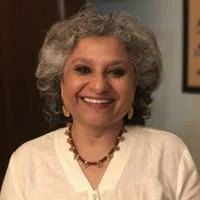
The Impact of Caste and Untouchability: A Missing Link in the Literature on Stunting in India
Part of the III Inequalities Seminar Series
Tuesday 22 November 12.30pm to 1.30pm. Online and in-person public event. LSE Centre Building, Room 2.05.
Speaker:
Professor Ashwini Deshpande, Professor of Economics and Founding Director, Centre for Economic Data and Analysis (CEDA), Ashoka University, IndiaChair:
Professor Naila Kabeer, Professor of Gender and Development, Department of Gender Studies, LSEIndia is home to nearly a third of all stunted children. Previous research has overlooked the critical role of caste and the stigmatizing practice of untouchability in shaping incidence of stunting: upper caste (UC) Hindu children are 57% less likely to be stunted than the low-ranked Scheduled Caste (SCs) children. We document the strong negative correlation between the prevalence of the self-professed practice of untouchability and gaps in stunting rates between the UC-Hindu and SC children. The historical geographical span of Hinduism was bounded to the south by the Vindhya Mountain range. Hence, untouchability and caste practices were more rigid to the North of the Vindhya range, directly under the influence of the Indo-Aryan social order. Our estimates show that the SC children living to the south of the Vindhya range are around 30% taller, and have 40% lower levels of stunting, than their counterparts living to the north.
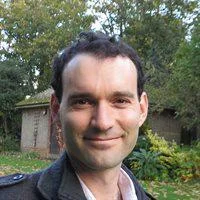
Social Reproduction and Domestic Service: An International Comparison
Part of the III Inequalities Seminar Series
Tuesday 15 November 12.30pm to 1.30pm. Online and in-person public event. LSE Centre Building, Room 2.05.
Speaker:
Dr Marion Lieutaud, Postdoctoral Research Fellow, LSE Department of Methodology and Visiting Fellow, LSE III
Dr Paul Segal, Reader in Economics of Development, Department of International Development, Kings College London and Visiting Fellow, LSE IIIChair:
Dr Shalini Grover, Research Fellow, LSE IIIAcross the world, over 75 million people are domestic workers for private households (ILO 2021). Previous scholarship has unveiled their working conditions and transnational lives, and how domestic work is built on global inequalities (Parreñas 2015). This paper looks at the households who employ these workers, to understand the context, conditions and inequalities that make it possible for some families to purchase the reproductive labour (housework and carework) of others. Households divide this labour between family, community, the market, and the state. How they do this depends on factors including the extent of state provision of care services, and the degree of economic inequality. In order to identify and weigh these different dimensions, we consider a sample of 8 countries (4 Western European countries; 3 Eastern European countries including Russia; and Mexico) and we use a combination of time-use and expenditure data from cross-national surveys and national surveys.

Multidimensional measurement tool for social security framework assessment: Conceptualisation, construction and comparison
Part of the III Inequalities Seminar Series
Tuesday 8 November 12.30pm to 1.30pm. Online and in-person public event. LSE Centre Building, Room 2.05.
Speaker:
Dr Ashish Dongare, Sir Ratan Tata Postdoctoral Fellow, LSE IIIChair:
Professor Francisco H.G. Ferreira, Amartya Sen Professor of Inequality Studies and Director, LSE IIINeedless to mention that there exists a strong interconnectedness between various social security programs and their outcomes are also interlinked. Thus, a holistic approach for review and assessment of social security framework is of vital importance. This research aims at providing a measurement tool for assessment of social security framework to enable optimal allocation and utilisation of available resources.
It involves conceptualisation of Multidimensional Social Security Index (MSSI) covering various aspects of social protection including income security, health security, education security. For this purpose, sub-indices representing broader areas of social security are constructed and indicators are curated to evaluate such sub-indices on the basis of parameters like adequacy, coverage, etc. The sensitivity analysis for robustness check of this newly constructed index has been conducted. Further, a case study of India has been undertaken to check the practical application and to assess the status of safety net at selected states in India.

Using Machine Learning to Decompose Inequality: The Case of Opportunity in South Africa
Part of the III Inequalities Seminar Series
Tuesday 25 October 12.30pm to 1.30pm. Online and in-person public event. LSE Centre Building, Room 2.05.
Speaker:
Dr Pedro Salas-Rojo, Research Officer, LSE IIIChair:
Dr Paolo Brunori, Assistant Professorial Research Fellow, LSE IIIAccording to a widespread view a society achieves equality of opportunity when individuals exerting the same effort obtain the same outcomes regardless of circumstances that they cannot control such as gender, race, and socioeconomic background. This view was formalized by John Roemer in a number of influential contributions. We illustrate an exact analogy between how the phenomenon of inequality of opportunity may be measured and how transformation trees - a machine learning algorithm developed by Hothorn and Zeileis (2021) predicts an output variable based on a set of features. Then, we use data from South Africa (2017) to analyze inequality of opportunity. Our estimates show that the magnitude of this phenomenon is much greater than what has been suggested in the past. Limiting the analysis to only three circumstances - race, parental education and occupation - the Gini of inequality of opportunity ascends to 0.45, twice as large as previously estimated.
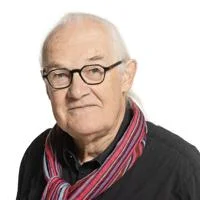
Challenges Facing Liberal Democracies: Citizenship and civil society confronting growing inequality
Part of the III Inequalities Seminar Series
Tuesday 18 October 12.30pm to 1.30pm. Online and in-person public event. LSE Centre Building, Room 2.05.
Speaker:
Professor Thomas P. Boje, Professor, Department of Social Science and Business, Roskilde UniversityChair:
Dr Armine Ishkanian, Executive Director of the Atlantic Fellows for Social and Economic Equity Programme, LSE III, Associate Professor in the Department of Social PolicySome of the crucial challenges facing all liberal democracies in their aspiration for social cohesion and solidarity are how to provide the conditions for individuals to be active, participative citizens. In other words, how to provide opportunities and frameworks for citizens to be involved in mutual social and cultural relationships and for society and the collective to show solidarity with disadvantaged groups. In this seminar, Professor Thomas P. Boje will discuss some of the major challenges facing today’s liberal democracies when it comes to growing inequality, restrictions on citizenship rights, growing polarization in civic activism and the impact of globalization on citizens’ empowerment.

Mobilising Productive Subjectivities: Transnational production and social reproduction in unequal Europe
Part of the III Inequalities Seminar Series
Tuesday 11 October 12.30pm to 1.30pm. Online and in-person public event. LSE Centre Building, Room 2.05.
Speaker:
Dr Ania Plomien, Associate Professor, Department of Gender Studies, LSEChair:
Dr Shalini Grover, Research Fellow, LSE IIIDrawing on an ongoing collaborative project (with Dr Gregory Schwarz) on transnational labour mobility with Polish and Ukrainian migrants working in the food, housing and care sectors in Germany, Poland, and the UK, this event interrogates the dialectical relationship between (global) forces of production and (local) necessities of social reproduction.
The event focuses on the gendered lived experiences of labouring subjectivities of transnational workers, as they confront the necessities of provisioning in a field increasingly dominated by market (vis-à-vis state and household) resourcing. Plomien considers the role that different historico-culturally constituted ‘productive subjectivities’ play in facilitating the social reproduction of European capitalism and draw out the implications for gender inequality, the extent to which inequalities are being accommodated and re-inscribed, rather than transformed.

Evaluating Allocations of Opportunities
Part of the III Inequalities Seminar Series
Tuesday 4 October 12.30pm to 1.30pm. Online and in-person public event. LSE Centre Building, Room 2.05.
Speaker:
Dr Francesco Andreoli, Associate Professor of Economic Policy, University of VeronaChair:
Professor Johannes Spinnewijn, Public Economics of Inequality Research Programme Leader, LSE III and Professor of Economics, LSEThis event will provide a robust criterion for comparing lists of probability distributions - interpreted as allocations of opportunities - faced by different social groups. Borrowing from decision making under objective ambiguity, we argue in favour of comparing those collections of probability distributions on the basis of a uniform - among groups - valuation of the expected utility associated to these distributions. We identify an empirically implementable criterion for comparing these lists of probability distributions - conic extension of Zonotope inclusion - that is agreed upon by all conceivable such valuations that exhibit aversion toward inequality of opportunities. We illustrate our criterion by evaluating allocations of educational opportunities among castes and genders in different Indian states.
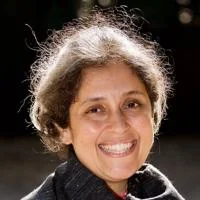
Understanding Inequality in India
Part of the III Inequalities Seminar Series
Tuesday 27 September. In-person and online public event.
Speaker:
Professor Reetika Khera, Narendra and Chandra Singhi Chair Professor, Indian Institute of Technology Delhi.Chair:
Professor Sumi Madhok, Professor of Political Theory and Gender Studies, LSEThe difficulties in measuring inequality in India, given the paucity of data and the compounding effects of social inequality on economic inequality, have been commented upon. Given these constraints, several scholars have documented the very high, and possibly rising, levels of economic inequality in India.
This talk turns the focus to the lack of recognition of the scale of the problem, especially among the rich/ elite in India. The issue requires urgent attention because the proliferation of digital technologies in basic education and health care is likely to exacerbate inequalities in the long run. The widespread misperception among India's rich/ elite that they are 'middle class' contributes to the lack of policy action, including action on fairer taxation policies in the country.

Of Victims, Sisters and Caring: Anti-trafficking, State and the Sex Workers’ Movement in Sonagachi
Part of the III Inequalities Seminar Series
Tuesday 7 June 2022, 12:30 to 1:30pm. Online public event.
Speakers:
Dr Simanti Dasgupta, Associate Professor of Anthropology, University of Dayton
Dr Samita Sen, Vere Harmsworth Professor of Imperial and Naval History, Faculty of History, University of CambridgeChair:
Dr Shalini Grover, Research Fellow, LSE IIIBased on ethnographic work with Durbar Mahila Samanwaya Committee (Durbar), a grassroots female sex work organization in Sonagachi, Kolkata, this seminar will examine the politics of care in anti-trafficking work. While anti-trafficking (specifically, the Immoral Trafficking Prevention Act, ITPA), as a state surveillance apparatus, is ostensibly rooted in caring about and for ‘victims’, the legal construction of the victim itself, within a carceral framework, is often tantamount to the violence of care. However, the care work that has emerged in the Self-Regulatory Board founded by Durbar in 1997 to prevent trafficking in Sonagachi is based on the sex workers’ shared experiences of rural-urban migration, forced displacement and, above all, labour and the search for livelihood. Yet, such spaces of care are both hidden and even devalued in terms of social reproduction.

Prioritarianism in Practice
Part of the III Inequalities Seminar Series
Tuesday 31 May 2022, 12:30 to 1:30pm. Online public event.
Speakers:
Professor Matthew Adler, Richard A. Horvitz Professor of Law and Professor of Economics, Philosophy and Public Policy, Duke University
Professor Francisco Ferreira, Amartya Sen Professor of Inequality Studies and LSE III DirectorChair:
Professor Kirsten Sehnbruch, Distinguished Policy Fellow, LSE III and Global Professor, British Academy"Prioritarianism in Practice" is an international group of scholars who aim to develop the theory and application of prioritarianism. This group has just published a substantial volume, Prioritarianism in Practice, including both theoretical chapters and chapters covering the application of prioritarianism to various policy domains (taxation, health care, fatality risk regulation, climate change, education, and the COVID-19 pandemic) and its use in measuring social progress. Professor Adler, one of the volume’s editors, will give an overview of the book. Professor Ferreira, a co-author of the chapter on "Equality of Opportunity," will discuss how prioritarianism can be extended to take account of individual responsibility.

Social reproduction and care: what’s in a name?
Part of the III Inequalities Seminar Series
Tuesday 24 May 2022, 12:30 to 1:30pm. Online public event.
Speaker:
Sara Farris, Reader in Sociology, Department of Sociology, GoldsmithsDiscussant:
Professor Naila Kabeer, Faculty Associate, III and Professor of Gender and Development, Department of Gender Studies and Department of International Development, LSEChair:
Professor Alpa Shah, Professor of Anthropology, Department of Anthropology and Convenor Global Economies of Care Research Theme, LSE IIIIn the last few years, and particularly during the pandemic, the concept of care and the concept of social reproduction have come to the front of feminist and political debates. Both concepts are often used as synonyms to refer to the type of labour undertaken by racialised women in European societies. Yet, the two concepts do not describe exactly the same thing; some of the scholars that use them are keen to draw distinctions. Against this background, Sara Farris will present an initial review of the debate and argue that one of the main distinctions between the two lies in the ways in which these frameworks view, or instead disavow, antagonism and ambivalence, as well as negative affect, in the context of capitalist social formations.

Citizenship 4 Sale: Millionaires, Microstates, and Mobility
Part of the III Inequalities Seminar Series
Tuesday 17 May 2022, 12:30 to 1:30pm. Online public event.
Speaker:
Dr Kristin Surak, Assistant Professor in Sociology, Department of Sociology, LSEChair:
Professor Mike Savage, Martin White Professor of Sociology, Department of Sociology and Convenor Cities, Jobs and Economic Change Research Theme, LSE IIICitizenship is often seen as a sacred bond between sovereign and subject, a key locus of identity in the modern world. Yet over the past ten years, several small countries have begun to sell it outright – and for remarkable sums – through formal, government-run programs. Yet why would anyone want to put down $2 million for membership in a microstate? We may think of citizenship as fundamentally about rights and identity, but for many, citizenship is a ticket. It’s not about the privileges it secures within the granting state, but those it brings rights outside it, usually in visa-free travel, business opportunities, and sometimes residence option in other countries. The result gives powerful third countries considerable sway over the value of what is at heart a sovereign prerogative. It also makes for a rollercoaster of a market in citizenship, for not only politics but – more often than not – geopolitics determines its dynamics. Drawing on five years of fieldwork in sixteen countries on four continents, this talk traces the emergence and operation of this intriguing global scene.
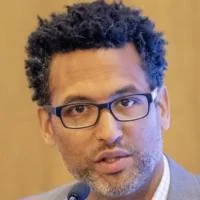
The Evolution of Black Neighborhoods in the U.S., 1970-2020
Part of the III Inequalities Seminar Series
Tuesday 10 May 2022, 12:30 to 1:30pm. Online public event.
Speaker:
Professor Michael Lens, Associate Professor of Urban Planning and Public Policy, Luskin School of Public Affairs, UCLAChair:
Professor Neil Lee, Professor of Economic Geography, Department of Geography and Environment and Convenor, Cities, Jobs and Economic Change Research Theme, LSE IIIAlthough there is an extensive literature on racial segregation in the United States, and a number of chronicles of Black life in American cities, there are few quantitative studies of Black neighborhoods. In this seminar, Professor Lens discusses his project which aims to fill these gaps by systematically describing the characteristics and trajectories of predominantly Black neighborhoods in the United States, beginning in 1970 — a key inflection point for the Black neighborhood and urban America more broadly.
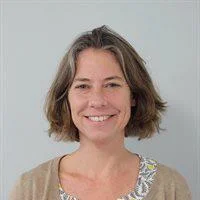
‘The Library Is like a Mother’: arrival infrastructures and migrant newcomers in East London
Part of the III Inequalities Seminar Series
Tuesday 22 March 2022, 12:30pm to 1:30pm. Online public event.
It is often assumed that migrants settle into contexts populated by national majorities or co-ethnics. Yet new migrants often move into ‘arrival areas’ settled by previous migrants from various backgrounds. Such arrival areas can typically be found at the margins of ‘arrival cities’ which have seen immigration (and emigration) over many decades. Past movements bequeath a wealth of ‘arrival infrastructures’, consisting of institutions, organisations, social spaces and actors which specifically facilitate arrival. These include, for example, shops as information hubs, religious sites, language classes, and hairdressers, often established by people with migration backgrounds.
This seminar develops the idea of arrival infrastructures as local ‘social infrastructure ecosystems’ in which knowledge and resources between long-established residents (including migrants) and newcomers are exchanged. It looks at the interactions and transfer of knowledge and resources between long-established migrants and more recent newcomers through arrival infrastructures and how these shape migrant inclusion and exclusion. By drawing on ethnographic fieldwork in East London (UK), the seminar investigates how newcomers access settlement information and the role played by arrival infrastructures in this process. It aims to open up debate about arrival infrastructures, their manifestation in different urban contexts, and their relation to migrant social mobility.
Speaker: Professor Susanne Wessendorf (Centre for Trust, Peace and Social Relations, Coventry University)
Chair: Professor Alpa Shah (Department of Anthropology and Convenor Global Economies of Care Research Theme, LSE III)

Multidimensional Quality of Employment (QoE) Dynamics: evidence from men and women in Chile
Part of the III Inequalities Seminar Series
Tuesday 15 March 2022, 12:30pm to 1:30pm. Online public event.
Speaker: Dr Joaquin Prieto-Suarez (Research Officer, LSE III)
Chair: Dr Berkay Ozcan (Department of Social Policy, LSE)
In recent years, conventional labour market studies have focused not only on the number of jobs and their employment and unemployment indicators, but also on identifying whether jobs are good or bad. Scholars have raised the relevance of studying the quality of employment in emerging countries based on the realisation that economic growth alone does not necessarily improve employment conditions and that social insurance systems cannot be built on precarious labour markets.
This seminar proposes a framework to analyse the quality of employment (QoE) from a multidimensional (income, stability and conditions) and longitudinal perspective. A dynamic analysis of the QoE provides an understanding of which workers appear to become "stuck" in poor quality jobs and which workers succeed in moving into higher-quality jobs. It also enables examining whether the QoE dynamics of men and women differ.
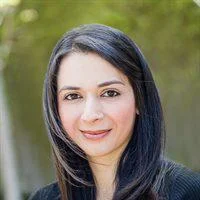
Crunch Time: how married couples confront unemployment
Part of the III Inequalities Seminar Series
Tuesday 8 March 2022, 12:30pm to 1:30pm. Online public event.
In this talk, based on her book, Crunch Time, Aliya Hamid Rao gets up close and personal with college-educated, unemployed men, women, and spouses in the U.S. to explain how comparable men and women have starkly different experiences of unemployment. Traditionally gendered understandings of work—that it’s a requirement for men and optional for women—loom large in this process, even for marriages that had been not organized in gender-traditional ways. These beliefs serve to make men’s unemployment an urgent problem, while women’s unemployment—cocooned within a narrative of staying at home—is almost a non-issue. Crunch Time reveals the minutiae of how gendered norms and behaviours are actively maintained by spouses at a time when they could be dismantled, and how gender is central to the ways couples react to and make sense of unemployment.
Speaker: Dr Aliya Rao (Department of Methodology, LSE)
Chair: Dr Shalini Grover (Research Fellow, LSE III)
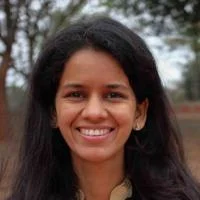
Mountain Tales: love and loss in the municipality of castaway belongings
Part of the III Inequalities Seminar Series
Tuesday 8 February 2022, 12:30pm to 1:30pm. Online public event.
Speaker: Saumya Roy (Co-Founder, Vandana Foundation)
Discussant: Dr George Kunnath (Research Fellow, LSE III)
Chair: Dr Shalini Grover (Research Fellow, LSE III)
In this event, author, journalist and activist Saumya Roy will discuss her new book, Mountain Tales, which explores the "noxious and wonderful world" of Maximum City's rising mountains of garbage and the waste pickers who trawl through them.
The towering garbage mountains are reflections of modern India and provide a window into local and global inequalities that arise from overconsumption, pollution, climate change and poverty. Saumya Roy will be in conversation with Dr George Kunnath about the truths that are unravelled through the stories of the small, forgotten community that lives and works amongst Mumbai's castaway belongings.

Global Wealth, Gender and Carbon Injustice: new findings from the World Inequality Report 2022
Part of the III Inequalities Seminar Series
Tuesday 1 February 2022, 12:30pm to 1:30pm. Online public event.
The presentation will discuss the key findings of the World Inequality Report 2022, by the report's lead author, Lucas Chancel. The report draws from the work of a network of over 100 researchers affiliated with the World Inequality Database, who track economic inequality in its various forms. The 2022 edition presents novel results on global wealth inequalities, gender gaps and ecological inequalities.
"Read this report, shout out its messages, find ways to act upon it." - Abhijit Banerjee and Esther Duflo.
"If one lesson emerges from the richness of the data presented in this report, it is that human societies can choose how much inequality they generate through social and public policy. The report is a world map and a roadmap as to how." - Emmanuel Saez.
Speaker: Dr Lucas Chancel (World Inequality Lab, Paris School of Economics)
Chair: Professor Francisco Ferreira (Amartya Sen Professor of Inequality Studies and LSE III Director)
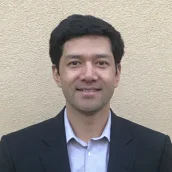
The Impact of COVID-19 on Global Inequality and Poverty
Part of the III Inequalities Seminar Series
Tuesday 25 January 2022, 12:30pm to 1:30pm. Online public event.
COVID-19 has had catastrophic economic consequences worldwide. This presentation tries to quantify the consequences of the pandemic on global inequality and poverty in 2020.
To this end, a combination of data sources is used including (i) actual income data from National Statistical Offices, (ii) high-frequency phone surveys, (iii) estimates from literature, and (iv) sectoral and aggregate GDP growth forecasts from national accounts. Results suggest that the world in 2020 witnessed the largest increases to global inequality and poverty since at least 1990. These findings are primarily driven by country-level shocks to average incomes and an increase in between-country inequality. Increases in between-country inequality are driven by the finding that middle-income countries were hit hardest. Changes in within-country inequality were relatively modest, particularly in high-income countries, many of which saw inequality decline in 2020.
Speaker: Dr Nishant Yonzan (Poverty and Inequality team, World Bank Group)
Chair: Dr Paolo Brunori (Assistant Professorial Research Fellow, LSE III)

Unfair Health Inequalities in the UK
Part of the III Inequalities Seminar Series
Tuesday 18 January 2022, 12:30pm to 1:30pm. Online public event.
In this seminar, Dr Paolo Brunori will discuss his recent paper in which he measures unfair health inequality in the UK using a novel data-driven empirical approach. He shows that unfair inequality is a substantial fraction of the total explained health variability (health variability being the result of circumstances beyond individual control and health-related behaviours). This finding holds no matter which exact definition of fairness is adopted: using both the fairness gap and direct unfairness measures, each evaluated at different reference values for circumstances or effort.
Speaker: Dr Paolo Brunori (Assistant Professorial Research Fellow, LSE III)
Chair: Professor Francisco Ferreira (Amartya Sen Professor of Inequality Studies and LSE III Director)
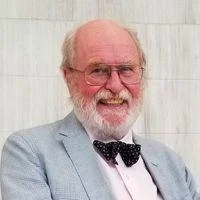
Is there a 'Grand Gender Convergence' in 21st Century Canada? The Jury is still out
Part of the III Inequalities Seminar Series
Tuesday 7 December, 12:30pm to 1:30pm. Online public event.
Gender equity in the labour market has been an issue in western economies since the mid 19th century. Much progress has been made since that time and has been dubbed the "The Grand Gender Convergence". However, recently concern has been expressed as to whether the progress has stalled. In the absence of gender discrimination within the context of an equal opportunity paradigm, if willingness to work and acquire human resources is similarly distributed across the gender divide, females and males with similar human resource stocks should have similar income distributions. Here, new techniques are introduced for examining the convergence of male and female resources and outcomes which are exemplified in an analysis of gender convergence in Canada’s 21st Century labour market
Speaker: Professor Gordon Anderson (University of Toronto)
Chair: Professor Francisco Ferreira (Amartya Sen Professor of Inequality Studies and LSE III Director)
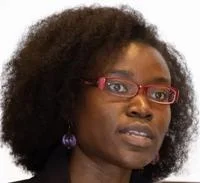
Does Dual Citizenship Reproduce Inequalities?
Part of the III Inequalities Seminar Series
Tuesday 30 November, 12:30pm to 1:30pm. Online public event.
Robtel Neajai Pailey grapples with this question and more in her engaging monograph Development, (Dual) Citizenship and Its Discontents in Africa: The Political Economy of Belonging to Liberia (Cambridge University Press, 2021). Hers is the first book to evaluate domestic and diasporic constructions and practices of Liberian citizenship across space and time and their myriad implications for development.
In this seminar drawing on rich life histories from over two hundred in-depth interviews in West Africa, Europe, and North America, Pailey uses a contested dual citizenship bill, introduced in Liberia in 2008 but never passed, as an entry point to ask broader questions about how citizenship is differentiated by class, gender, race, ethnicity, etc, and whether dual citizenship actually reproduces inequalities. She develops a new model for conceptualising citizenship within the context of ‘crisis’-affected states while offering a compelling critique of the neoliberal framing of diasporas and donors as the panacea to post-war reconstruction.
Speaker: Dr Robtel Neajai Pailey (Department of Social Policy, LSE)
Chair: Dr Sara Camacho Felix (Assistant Professorial Lecturer for the Atlantic Fellows in Social and Economic Equity programme, LSE III)

Shackled in Debt: Global Capitalism, Economic Crisis and Penal Politics in Greece
Part of the III Inequalities Seminar Series
Tuesday 23 November, 12:30pm to 1:30pm. Online public event.
An important body of scholarly work has been produced over the last two decades to explain variation in levels and patterns of state punishment across and within different countries around the world, especially with regard to imprisonment policies and practices. Two variables that have evaded systematic attention in this regard are, first, the orientation of incumbent governments along the political spectrum, and second, the experience and fiscal implications of national economic downturn. Although recent years have seen both variables receive somewhat greater consideration, there is still precious little research into the effects on state punishment that they have in interaction with one another. Because the few available studies touching on the matter have been preoccupied with the Anglo-American sphere and only in the context of recent decades at that, even less is known either about the implications that different types or experiences of economic crisis carry for state punishment, or about the influence exerted in this respect by government political orientations other than those found in established long-established democracies. Irrespective of geographical or temporal scope, moreover, the impact that different extranational factors and actors may have in terms of economic, political or directly penal matters domestically is still poorly understood.
In addressing this gap in the literature, this seminar identifies the direction and assesses the extent of influence exerted by government political orientation and by economic downturn upon the evolution of incarceration and other forms of state punishment in the context of two economic crises in Greece: the first experienced in the late 1920s and early 1930s, and the second one in the 2010s.
Speaker: Dr Leonidas Cheliotis (Department of Social Policy, LSE)
Chair: Dr Fabrício Mendes Fialho (Research Officer, LSE III)

New Estimates of Inequality of Opportunity Across European Cohorts
Part of the III Inequalities Seminar Series
Tuesday 16 November, 12:30pm to 1:30pm. Online public event.
This seminar, based on a study of the same name, provides a set of new estimates of inequality of opportunity (IOp) in Europe, using the European Union Statistics on Income and Living Condition (EU-SILC). Unlike previous research, inequality of opportunity is estimated within birth cohorts, which is argued to be the appropriate population level for inequality of opportunity analysis. Most IOp measures require estimation of the conditional distribution of the outcome of interest given circumstances. With multiple circumstances and the sample sizes available in EU-SILC, distribution regression methods are used and combined with local kernel weighting to show how these can be used to estimate a large set of IOp measures. Endowed with cohort-level estimates of IOp, the relationship between educational policy variables measured at the time of parental education and offspring generation inequality of opportunity in adulthood are examined. A negative relationship between the duration of compulsory education of the parents and IOp among offspring is found, but the relationship is weak.
Speaker: Professor Philippe Van Kerm (University of Luxembourg)
Chair: Dr Paolo Brunori (Assistant Professorial Research Fellow, LSE III)

Political Equality: what is it and why does it matter?
Part of the III Inequalities Seminar Series
Tuesday 9 November, 12:30pm to 1:30pm. Online public event.
Commentators and researchers have largely studied inequality, both theoretically and empirically, using a distributional framework. In economics, the focus has mainly been on differences in income and wealth, thus putting the distribution of utility or welfare, and its dependence on material factors, front and centre. This has motivated much statistical work on the measurement of inequality, such as changes in the Gini coefficient or ratios of resource ownership between groups (e.g. 90:10 ratios). In political philosophy and political science, the emphasis in studies of (political) inequality has been on analysing the skewed distribution of power in society, although no parallel literature on measurement has emerged to date. This too is consequently a study of distribution, thereby creating a common thread across the social sciences.
Our focus in this paper is on equal consideration as an ideal for political equality. This is distinct from economic equality and has parallels to discussions of relational equality. We argue that political inequality is a distinctive type of inequality. First, it cannot be reduced to the factors that routinely go into thinking about economic inequality. Second, its currency is performative, not distributive and is fundamentally about the nature and quality of social relations; politics is intrinsically process-oriented, comprising various "political transactions" between citizens, representatives, and interest groups, among others. Thus, to understand political equality, we need to appreciate how individuals relate to one another through the democratic process. We argue that there are two core dimensions that can usefully be studied to bring these ideas to life empirically: patterns of political participation and political representation. Studying these reinforce the idea that, even in advanced democracies, politics is an elite activity concentrated among the educated and those with material resources. We then unpack when this is damaging to achieving "equal consideration" and discuss a range of reforms throughout history that have been proposed to promote political equality through this lens.
Please note that this event will not be recorded.
Speaker: Professor Tim Besley (Department of Economics, LSE)
Chair: Professor Alpa Shah (Convenor Global Economies of Care Research Theme and Professor in Anthropology, Department of Anthropology)
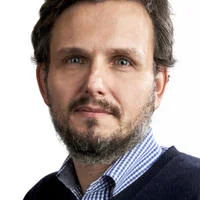
Is Inequality a Side Effect of Central Bank Independence?
Part of the III Inequalities Seminar Series
Tuesday 26 October, 12:30pm to 1:30pm. Online public event.
Since the 1980s, income inequality has increased substantially in several countries. This event is based on a paper that builds a theory linking these dynamics to central bank independence. We posit the existence of three mechanisms that indirectly tie central bank independence to inequality. First, central bank independence constrains fiscal policy and weakens a government's ability to engage in redistribution. Second, central bank independence incentivizes governments to deregulate financial markets, which generates a boom in asset values and increases non-wage returns. Third, to contain unemployment, governments actively promote policies that weaken the bargaining power of workers. Together, these policies strengthen secular trends towards higher within-country inequality.
Empirically, the analysis finds a strong relationship between central bank independence and inequality, as well as a varying degree of support for each of the three mechanisms. From a policy perspective, our findings contribute to knowledge on the undesirable side effects of central bank independence.
Speaker: Dr Andreas Kern (Georgetown University)
Chair: Dr Joaquin Prieto (Research Officer, LSE III)
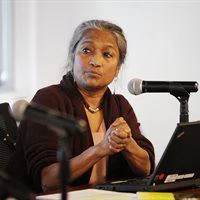
Feminist Readings of COVID-19: a conversation
Part of the III Inequalities Seminar Series
Tuesday 19 October, 12:30pm to 1:30pm. Online public event.
The rise of the COVID-19 pandemic has impacted profoundly the ways in which we labour and live. It has revealed the centrality of care and social reproduction for the functioning of our economy. Moreover, it has clearly revealed the strength of feminist understandings of the world economy, including their focus on the world of work, households and care, and collective action.
This panel is organised as a conversation exploring the gendered impact of COVID-19 on livelihoods, life-making sectors, the world of work. Themes explored include the differential impact of the pandemic on women, the restructuring of social reproduction, and the rise of novel work dichotomies such as 'essential' and 'non-essential' work. The panel will also explore which policies and practices are likely to centre the post-pandemic recovery on gendered labour, care, and social reproduction.
Speakers: Professor Naila Kabeer (Department of Gender Studies, LSE), Dr Alessandra Mezzadri (Department of Development Studies, SOAS) and Dr Sara Stevano (Department of Economics, SOAS)
Chair: Shalini Grover, (Research Fellow, LSE III)

Researching Race and Racial Inequality in the UK Film Industry
Part of the III Inequalities Seminar Series
Tuesday 12 October, 12:30pm to 1:30pm. Online public event.
The growth of the cultural and creative industries (CCIs) over the past 20 years has coincided with an increased awareness of and research on prevalent racial inequalities in the sector. This has included studies on how Black and ethnic minority people are included in, represented by and experience the UK film industry in particular. Using a unique dataset, major new research undertaken by Dr Clive Nwonka (University College London) and Professor Sarita Malik (Brunel University London) in collaboration with the British Film Institute is exploring the relationship between racial inequality, diversity and cultural policy in the UK film sector by researching through both quantitative and qualitative modes how factors such as regionality, genre have challenged how we must interpret data-led approaches to the study of racial and ethnic difference within the sector and the role of testimony in understanding the nature of discriminatory institutional cultures and practices.
Arguing for a social policy approach to how we understand racial inequalities in the UK film sector and its connected industries, this seminar presentation allows for an exploration of how a mixed methodological approach drawing from film studies, cultural studies, media and communications as well as sociological frames are crucial to a critical understanding of the multi-dimensional forms of racial inequality in the UK film industries. The seminar will also consider the historical significance of British film culture and industry as a site of racial struggle and contestation, the political discourses the language and practice of ‘cultural diversity’ and ‘structural racism’ have and continue to be embedded in, and the various ways in which current research seeks to decouple ‘diversity work’ from anti-racism and the implications of such a critical shift in informing inclusion policy strategies.
Speakers: Dr Clive Nwonka (Visiting Fellow, LSE III; University College London) and Professor Sarita Malik (Brunel University London)
Chair: Dr Luna Glucksberg (Research Fellow, LSE III)

Caste, Class and Social Mobility in Palanpur
Part of the III Inequalities Seminar Series
Tuesday 28 September, 12:30pm to 1:30pm. Online public event.
Since its independence (1947), India has undergone profound social, political and economic transformations driven by the agrarian reforms in the 1950s, the Green Revolution in the 1970s and the neoliberal turn in the 1990s. While these changes have contributed to the economic development of the country, it is less clear to what extent better opportunities for social mobility opened up to individuals, particularly those from groups historically disadvantaged by their caste position. Previous large-scale studies of social mobility in India have been limited by the lack of intergenerational data and the impossibility to disaggregate administrative caste categories into jatis (birth-ascribed endogamous groups).
This talk is based on a study that partly overcomes these limits using unique individual-level data for the entire population of Palanpur (a North Indian village surveyed seven times from 1958 to 2015). Combining a quantitative analysis of trends, patterns and determinants of social mobility across three generations of individuals with a qualitative analysis of 102 semi-structured interviews carried out in 2018 during six-month fieldwork, the study aims at verifying whether social mobility has increased over time and whether caste, at the jati level, continues to be a determinant factor of social (im)mobility.
Speaker: Dr Floriane Bolazzi (Università degli Studi di Milano)
Chair: Professor Nicholas Stern (Chair of the Grantham Research Institute, LSE)
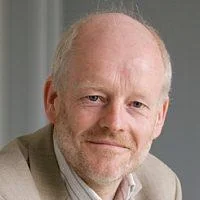
Intergenerational Transfers, Wealth and Gender in Britain
Part of the III Inequalities Seminar Series
Tuesday 25 May 2021, 12:30pm to 1:30pm. Online public event.
This talk will investigate the impact of intergenerational wealth transfers on wealth levels and inequality, exploiting rich household survey data. It will analyse patterns of intergenerational transfer receipt by gender, and assesses the extent to which differences in the scale and nature of these receipts contribute to the gender wealth gap.
Speakers: Brian Nolan (Professor of Social Policy, Department of Social Policy and Intervention, University of Oxford) and Juan Palomino (Research Officer, Department of Social Policy and Intervention, University of Oxford)
Chair: Professor Francisco Ferreira (Amartya Sen Professor of Inequality Studies and LSE III Director)

Faces of Inequality: a mixed methods approach to multidimensional inequalities
Part of the III Inequalities Seminar Series
Tuesday 18 May 2021, 12:30pm to 1:30pm. Online public event.
This paper, co-authored with Dr Ingrid Bleynat, presents a new mixed methods approach to measuring and understanding multidimensional inequality, and applies it to new data for Mexico City. Quantitative and qualitative dimensions of inequality are incorporated, integrating the concerns of both economists and sociologists.
This portrayal of inequality combines the representativeness of quantitative approaches with the depth and nuance of qualitative analyses of lived experience, habitus, and social relations.
Speaker: Paul Segal (Reader in Economics of Development, Department of International Development at King's College London)
Chair: Dr Tahnee Ooms (Research Officer, LSE III)
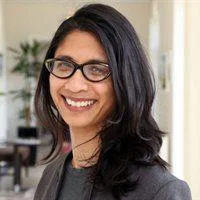
Refusing Discriminatory Technologies of Power: racial justice and the challenge of hi-tech policing
Part of the III Inequalities Seminar Series
Tuesday 11 May 2021, 12:30pm to 1:30pm. Online public event.
From informational capitalism to biased code, technological systems increasingly form part of larger structures of oppression and domination. This talk tackles the topic of technology, injustice, and inequity with a focus on bottom-up practices of resistance, rejection, and refusal of digital and automated systems that increasingly govern people’s lives.
Drawing from examples of data-driven policing in Europe and the United States, this talk explores the narrative, technical, and political challenges faced by members of affected communities - especially minoritised and racialised communities - in countering these discriminatory technologies of power. Given these challenges, what can affected communities learn from other practices of technological refusal?
Speaker: Dr Seeta Peña Gangadharan (Associate Professor, Department of Media and Communications, LSE)
Chair: Professor Ellen Helsper (Research Theme Convenor (Politics of Inequality); Professor in Digital Inequalities, Department of Media and Communications, LSE)

Homoploutia: Top Labor and Capital Incomes in the United States, 1950-2020
Part of the III Inequalities Seminar Series
Tuesday 4 May 2021, 12:30pm to 1:30pm. Online public event.
Homoploutia describes the situation in which the same people are rich in the space of capital and labor income. In this talk, survey and administrative data is combined to document the evolution of homoploutia in the United States since 1950, finding that the increase in labor income inequality contributed to the rising homoploutia, which in turn explains 20% of the increase in interpersonal income inequality since 1986.
Speaker: Yonatan Berman (Research Fellow, London Mathematical Laboratory)
Chair: Dr Nora Waitkus (Research Officer, LSE III)

Anonymous and Non-Anonymous Growth Incidence Curves in the United States, 1968-2016
Part of the III Inequalities Seminar Series
Tuesday 30 March 2021, 12:30pm to 1:30pm. Online public event.
This paper combines cross-sectional and longitudinal labor income data to present a comparison between anonymous and non-anonymous growth incidence curves in the United States during the past 50 years. If anonymous growth incidence tend to be upward sloping because of increasing inequality during that period, the same is not true of non-anonymous curves, which prove to be at or non-significantly downward sloping, suggesting some neutrality of growth when initial income positions are accounted for. This is true when using either the PSID data or synthetic panels based on CPS data and one-parameter functional representations of income mobility. Flat non-anonymous curves are observed even in periods of increasing cross-sectional income inequality. Differences between anonymous and non-anonymous curves thus matter for the interpretation of inequality changes, social welfare and policy.
Speaker: Professor François Bourguignon (Emeritus Professor of Economics, Paris School of Economics)
Chair: Professor Francisco Ferreira (Amartya Sen Professor of Inequality Studies and LSE III Director)
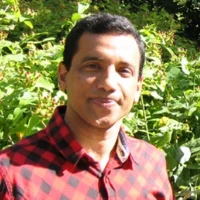
When Violence Endures: inequality, resistance, and repression in India's Maoist guerrilla zones
Part of the III Inequalities Seminar Series
Tuesday 23 March 2021, 12:30pm to 1:30pm. Online public event.
This paper engages with the concept of violence in the context of the ongoing Maoist insurgency and counterinsurgency in India. During the five-decade-long armed conflict involving the Maoist guerrillas and the landless/poor peasants on the one side, and the state security forces and upper-caste/private militias on the other, violence has taken multiple forms. It has spiralled, giving rise to new formations and new theatres of war, especially in the forested areas which are home to indigenous populations. In this paper, I attempt to conceptualise this enduring violence and reflect on the possibility of resolutions, drawing on twenty years of my research in conflict-affected regions in India, and recently in Colombia. Employing the framework of the ‘Spiral of Violence’ developed by Helder Camara (1909–1999), a Brazilian liberation theologian, I explore the many faces of violence as manifested in a continuum of structural inequality, resistance and repression. As there has been no meaningful transition from violence to peace in India’s guerrilla zones, I draw on a comparative model, and discuss the insights that the 2016 peace agreement in Colombia might provide for India. In Colombia, also ravaged by the cycle of violence, the peace agreement between the FARC and the state facilitated the end of a similarly long-lasting armed conflict. The comprehensive peace process in Colombia, in spite of its setbacks, has demonstrated that without addressing the persisting inequalities, the spiral of violence cannot be broken. What could India learn from the achievements and pitfalls of the Colombian model?
Speaker: Dr George Kunnath (Research Fellow, LSE III)
Chair: Professor Ellen Helsper (Research Theme Convenor (Politics of Inequality) and Professor in Digital Inequalities at the Department of Media and Communications)
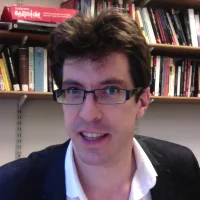
Households, Inequalities and Care: lockdown experiences from the UK, New Zealand and India
Part of the III Inequalities Seminar Series
Tuesday 09 March 2021, 12:30pm to 1:30pm. Online public event.
This event will explore how the COVID-19 pandemic has revealed the need to centre an understanding of the household in policy-making and politics if we are to mitigate inequalities. It will do so by unveiling the insights of immersive anthropological research on the impact of the COVID-19 lockdowns as experienced in the UK, New Zealand and India. It will explore the inequalities, in particular an informal and formal care deficit generated by UK national and local lockdowns, along with the problematic assumptions about the household and community in COVID-19 policy interventions in the UK. It will analyse the success, but also the limitations, of bubble policies in the New Zealand as a strategy for allowing citizens to support loved ones living beyond their immediate residence whilst nevertheless preventing the spread of COVID-19. And it will highlight the significance of the spatio-temporal division of households that were at the heart of the plight of the hundreds of thousands of migrant labourers who took to their feet and marched home when the lockdowns were called in India. Overall, we will suggest alternative approaches to policy and politics grounded in anthropological insights and methods.
Speakers: Dr Alpa Shah (Associate Professor of Anthropology; Research Theme leader of ‘Global Economies of Care’, III, LSE), Professor Laura Bear (Professor of Anthropology, LSE), Dr Nick Long (Associate Professor of Anthropology, LSE)
Chair: Dr Insa Koch (Associate Professor of Law and Anthropology)

The Changing Geography of Social Mobility in the United States
Part of the III Inequalities Seminar Series
Tuesday 16 February 2021, 12:30pm to 1:30pm. Online public event.
New evidence shows that intergenerational social mobility – the rate at which children born into poverty climb the income ladder – varies considerably across the United States. Is this current geography of opportunity something new or does it reflect a continuation of long-term trends? We answer this question by constructing new data on the levels and determinants of social mobility across American regions over the twentieth century. We find that the changing geography of opportunity-generating economic activity restructures the landscape of intergenerational mobility, but factors associated with specific regional structures of interpersonal inequality that have "deep roots" generate persistence. This is evident in the sharp decline in social mobility in the Midwest as economic activity has shifted away from it, and the consistently low levels of opportunity in the South even as economic activity has shifted toward it. We conclude that the long-term geography of social mobility can be understood through the deep roots and changing economic fortunes of places.
Speaker: Dr Dylan Connor (Assistant Professor at School of Geographical Sciences and Urban Planning, Arizona State University)
Chair: Dr Neil Cummins (Associate Professor of Economic History, LSE)

The Economic Consequences of Major Tax Cuts for the Rich
Part of the III Inequalities Seminar Series
Tuesday 02 February 2021, 12:30pm to 1:30pm. Online public event.
The last 40 years have seen a substantial fall in taxes on the rich across the OECD countries. This coincided with a period of rising income inequality, especially in the Anglo-Saxon countries. Given the difficulties of establishing causality from cross-country panel studies, however, the extent to which tax cuts on the rich have driven up income inequality remains an open empirical question. This paper aims to fill that gap in the literature by using new matching techniques for panel data to estimate the causal effect of major tax cuts on the rich on income inequality. As proponents of tax cuts on the rich often argue for their beneficial effects on economic performance due to efficiency gains and the reduction of behavioural distortions, we also estimate the effects of major tax cuts on the rich on economic growth and unemployment. Our analysis finds strong evidence that cutting taxes on the rich increases income inequality but has no effect on growth or unemployment. Overall, this new research suggests that lower taxes on the rich have made a significant contribution to increased income inequality in the OECD countries since the 1980s, with no offsetting gains in economic performance.
Speakers: Dr David Hope (Department of Political Economy, Kings College London, Visiting Research Fellow, International Inequalities Institute), Dr Julian Limberg (Department of Political Economy, Kings College London)
Chair: Dr Luna Glucksberg (Research Fellow, LSE III)
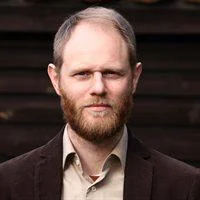
The unintended consequences of quantifying quality: Does ranking school performance shape the geographical concentration of advantage?
Part of the III Inequalities Seminar Series
Tuesday 26 January 2021, 12:30pm to 1:30pm. Online public event.
Based on a paper of the same name, this talk will investigate whether quantifying school performance can have the perverse consequence of increasing the spatial concentration of advantage.
Combining research on residential segregation with the sociology of quantification, the writers argue that ranking school performance may induce affluent parents to sort into areas with higher ranked schools. This hypothesis is explored by analysing whether the introduction of league tables measuring school performance in the early 1990s in the UK affected the spatial concentration of advantage. The writers find that quantifying school quality has the unintended consequence of increasing the geographical concentration of advantage, potentially entrenching poverty and inequality.Speakers: Dr Aaron Reeves (Associate Professor in the Department of Social Policy and Intervention at Oxford University, and a Visiting Senior Fellow in the International Inequalities Institute), Daniel McArthur (Postdoctoral Research Fellow in the Department of Politics and International Relations at Oxford University)
Chair: Dr Nora Waitkus (Research Officer, LSE III)
![Lee Elliot Major-01[2]](/all-images/information/lee-elliot-major-012-cropped-200x200.x09d38c59.jpg?w=200&h=200&q=85&f=webp)
Apocalypse or new dawn? Social mobility, inequality and education in the post-COVID era
Part of the III Inequalities Seminar Series
Tuesday 19 January 2021, 12:30pm to 1:30pm. Online public event.
What are the prospects for social mobility in the wake of the Covid pandemic? Britain’s first Professor of Social Mobility will assess the future implications of growing educational and societal inequalities, drawing on evidence from the latest research and his new book.
Social mobility can be defined in many ways, but however conceived the dials appear to be pointing in the wrong direction, particularly for ‘Generation Covid’, the under 25s. We are failing the basic fairness test in society: with inequalities so extreme those on the lower rungs of the economic or social ladder face an impossible task in forging a decent life, let alone climbing the ladder. The Covid crisis has highlighted the escalating expectations placed on teachers, and the education system more widely, to solve all of society’s ills.
Building a more mobile and equal society will require radical long-term reforms both outside and inside the school gates, including a one-off progressive wealth tax; guarantees for decent and valuable jobs across all regions of the country; a credible vocational stream linking education and work; more resources for schoolsto tackle social welfare alongside teaching and learning; and a step change in the social mobility approach within universities.
Some scholars predict that society will eventually unravel as the disenfranchised rise up against the elites. But the Covid crisis also offers an historic opportunity to reset society and create a fairer and more sustainable future for all.
Speaker: Professor Lee Elliot-Major (Professor of Social Mobility, University of Exeter)
Chair: Dr Sara Camacho-Felix (Assistant Professorial Lecturer, LSE III)
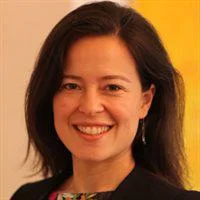
The Effects of Cash Transfers on Formal Labor Markets: evidence from Brazil
Tuesday 1 December 2020, 12:30pm to 1:30pm. Online public event
Speaker: Dr Joana Naritomi (Assistant Professor, Department of International Development, LSE)
Chair: Dr Armine Ishkanian (III Research Theme Convenor (Politics of Inequality), Executive Director AFSEE programme and Associate Professor at the Department of Social Policy, LSE)
Cash transfers have expanded widely in developing countries, and have been credited for a sizable reduction in poverty rates. Yet, the potential unintended consequences of these programs for labor markets have spurred a heated policy debate. Our results highlight the importance of accounting for both individual and aggregate effects of welfare programs in policy debates.
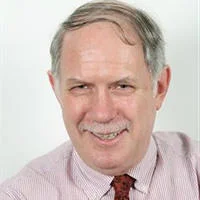
Found in Translation? Language Legislation and Pro-Social Preferences
Part of the III Seminar Series
Tuesday 17 November 2020, 12:30pm to 1:30pm. Online public event
Speaker: Frank A. Cowell (Department of Economics, LSE)
Chair: Professor Francisco Ferreira (Amartya Sen Professor of Inequalities, Director International Inequalities Institute
Language plays a central role in shaping people's identities. In multilingual countries, the legal recognition of a language increases its status; this may influence attitudes towards others and their preferences for redistribution. This paper studies the effect of the progressive introduction of official language recognition (OLR) in Indian states, on pro-social behaviour, including tolerance, willingness to redistribute and unselfishness. The exposure to OLR increases has a significant impact on pro-social behaviour, one that is modified by factors such as whether respondents are Hindi speakers.
Lives and Livelihoods: estimates of the global mortality and poverty effects of the COVID-19 pandemic
Part of the III Seminar Series
Tuesday 27 October 2020, 12:30pm to 1:30pm. Online public event
Speaker: Dr Benoit Decerf (University of Namur)
Chair: Professor Kirsten Sehnbruch (Distinguished Policy Fellow, LSE III)
This event will evaluate the global welfare consequences of increases in mortality and poverty generated by the COVID-19 pandemic. Increases in mortality are measured in terms of the number of years of life lost (LY) to the pandemic.
Three main findings arise. First, as of early June 2020, the pandemic (and the observed private and policy responses) has generated at least 68 million additional poverty years and 4.3 million years of life lost across 150 countries. The ratio of PYs to LYs is very large in most countries, suggesting that the poverty consequences of the crisis are of paramount importance. Second, this ratio declines systematically with GDP per capita: poverty accounts for a much greater share of the welfare costs in poorer countries. Finally, the dominance of poverty over mortality is reversed in a counterfactual "herd immunity" scenario: without any policy intervention, LYs tend to be greater than PYs, and the overall welfare losses are greater.

Culture Is Bad for You: inequality in the cultural and creative industries
Part of the III Seminar Series
Tuesday 13 October 2020, 12:30-1:30pm. Online public event
Speaker: Dr Dave O'Brien (Chancellor’s Fellow, Cultural and Creative Industries, University of Edinburgh)
Chair: Dr Sara Camacho Felix (Assistant Professorial Lecturer, LSE III)
This talk introduces themes from the book Culture is bad for you. The book analyses some of the connections between culture and social inequality. It presents the first large-scale study of social mobility into cultural and creative jobs, along with hundreds of interviews with cultural workers, and new analysis of secondary datasets. It uses this data to show that who works, and who engages, in culture is deeply unequal.
Alongside these themes, the talk addresses the intersection between class, race and gender underpinning exclusions from the workforce and the audience, demonstrating how women, people of colour, and those from working class origins are systematically excluded.
Why do people stay poor?
Tuesday 29 September 2020, 12:30pm to 1:30pm. Online public event
Speaker: Professor Oriana Bandiera (Sir Anthony Atkinson Chair in Economics, Director of STICERD)
Chair: Dr Tahnee Ooms (Research Officer, III)
There are two broad views as to why people stay poor. One emphasizes differences in fundamentals, such as ability, talent or motivation. The other, poverty traps view, differences in opportunities stemming from differences in wealth.
This study exploits a large-scale, randomized asset transfer and panel data on 6000 households over an 11 year period to test between these two views. The data supports the poverty traps view - identifying a threshold level of initial assets above which households accumulate assets, take on better occupations and grow out of poverty. The reverse happens for those below the threshold. The findings imply that big push policies which transform job opportunities for the poor might represent a permanent solution to the global mass poverty problem.

Racial Capitalism, Resurgent Populism, and the Politics of Rightsfocus
Inequalities Seminar Series25th February 2020, 12.30 to 1.45pm, FAW 9.05
Speaker: Professor Michael McCann is Gordon Hirabayashi Professor for the Advancement of Citizenship at the University of Washington in Seattle, WA. McCann is author of over sixty article-length publications and author, co-author, editor, or co-editor of eight books, including authoring the multi-award winning monographs Rights at Work: Pay Equity Reform and the Politics of Legal Mobilization (Chicago, 1994) and (with William Haltom) Distorting the Law: Politics, Media, and the Litigation Crisis (Chicago, 2004). His newest book, with George Lovell, is Union by Law: Filipino American Labor Activists, Rights Radicalism, and Racial Capitalism (Chicago 2020). McCann was the founding director of the Law, Societies, & Justice Program as well as the Comparative Law and Society Studies (CLASS) Center at UW; he was also one of the faculty co-founders for the UW Center for Human Rights and a two-term director of the Harry Bridges Center for Labor Studies. McCann is winner of multiple teaching and mentoring awards. He also was a President of the U.S. based international Law and Society Association (2011-13).
Chair: Professor Mike Savage (Director, International Inequalities Institute, LSE).
Scholars on both sides of the Atlantic have identified, often with some alarm, the ways that new populist forms of governance are posing challenges to the liberal rule of law that has constituted regimes in North America, Europe, and beyond in the post-WW II era. The presentation focuses on populist threats to the fundamental rights of persons – both established rights and opportunities for political advocacy of new or "novel’ egalitarian rights. McCann argues that the new populism resurrects illiberal, racist, and patriarchal social and legal norms – what we label as relations enforced by "repressive law" – that coexisted with and undercut liberal norms, institutional arrangements, policies, and elite defenders before the mid-century "racial break." Because the new populism tens to eschew or scorn even abstract deference to liberal universalist ideals, the politics of rights advocacy, especially for the most vulnerable persons, today faces new types of challenges.

The dog that didn’t bark? Income inequality and the absence of a Tawney moment in the mass media
Inequalities Seminar Series18th February 2020, 12.30 to 1.45pm, FAW 9.05
Speakers: Dr Patrick McGovern (Director of the MSc International Migration and Public Policy and an Associate Professor, Reader, in the Department of Sociology), Dr Sandra Obradovic (LSE Fellow in the Department of Psychological and Behavioural Science), Professor Martin W. Bauer (Director of MSc Social & Public Communication, Professor of Social Psychology Department of Psychological and Behavioural Science)
Have rising levels of income inequality been recognized as a scandalous social problem that requires radically different kinds of policy responses? Or has the topic failed to gain enough attention to be considered as a new social problem with the result that it has become subsumed within existing discussions of economic policy? Drawing on an analysis of UK and US newspapers we find that the coverage of income inequality came in three phases; an initial surge in the 1990s, followed by a decline in the early 2000s, and a second surge that takes off after the economic crisis of 2008. Despite this surge in media attention, the problem of inequality seems to have remained an academic concern as it does not appear to have resonated more widely.
Across the three periods, we observe a shift in framing, some diversity in frame sponsors and a shift in political slant, yet public attitudes towards inequality remain stable across this same time-period. Our argument is that social inequality has not become a mobilizing social problem, at least as reflected in the print media.
First, the dominant frames were centred on seemingly natural or inevitable processes of globalization, market forces and technological change rather than a new sense of economic injustice. Secondly, the sponsors remained as a relatively narrow group of academic and applied economists with some eventual interest from politicians. Finally, resolutions of the problem were subsumed within existing approaches to economic policy that included arguments for raising taxation, increasing the minimum wage or else accepting the rise in economic inequality as a necessary evil that provided rewards for hardworking people. Furthermore, these findings are consistent with system justifying attitudes.
In sum, the academic interest in income inequality has failed to ignite a ‘Tawney moment’, by which we mean, a public discourse that recognizes inequality as a scandalous evil, and names it as such.
Dr Patrick McGovern is Director of the MSc International Migration and Public Policy and an Associate Professor (Reader) in the Department of Sociology.Dr Sandra Obradović is an LSE Fellow in the Department of Psychological and Behavioural Science at the London School of Economics and Political Science (LSE). She obtained her BA in Sociology at the University of California, Los Angeles (UCLA), her MSc in Social and Cultural Psychology and her PhD in Psychology at the London School of Economics and Political Science (LSE).
Professor Martin W. Bauer is the Director of MSc Social & Public Communication, Professor of Social Psychology Department of Psychological and Behavioural Science.
Listen to the podcast episode
Download the slides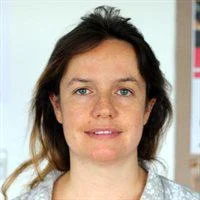
It’s Slippery at the Top: churn and anxiety amongst elite families
Inequalities Seminar Series4th February 2020, 12.30pm to1.45pm, FAW 9.05
Speaker: Dr Luna Glucksberg (Research Fellow, LSE International Inequalities Institute)
Chair: Dr Nora Waitkus (Research Officer, LSE International Inequalities Institute)
This paper takes as a starting point the apparent paradox in the behaviour of elite families who strive to accumulate more and more wealth, fearing to lose their position at the top and slip down the inequality curve. To unpack this contradiction the paper explores the fundamental problem that all elite families face, or rather are told they face, by their advisers: the issue of ‘generational algebra’.
Luna Glucksberg is Research Fellow at III. She is an urban anthropologist looking at inequality and socio-economic stratification in contemporary society. She has worked extensively on elites and how they reproduce; on the roles of women and family offices in the reproduction of dynastic families; and on how philanthropy can be used by elites to strengthen their own family dynamics.
Listen to the podcast episode
Download the slides
The Wealth Inequality of Nations: exploring and explaining cross-national differences in wealth
Inequalities Seminar Series21st January 2020, 12.30pm to 1.45pm, FAW9.05
Speaker: Dr Nora Waitkus (Research Officer, LSE International Inequalities Institute)
Chair: Dr Luna Glucksberg (Research Fellow, LSE International Inequalities Institute)
Comparative research on income inequality has produced several coherent frameworks to study the institutional determinants of income stratification. In contrast, no such framework and much less empirical evidence exist to explain cross-national differences in wealth inequality. This situation is particularly lamentable as cross-national patterns of inequality in wealth diverge sharply from those in income. This talk seeks to pave the way for new institutional explanations of cross-national differences in wealth inequality by tracing them to the influence of different wealth components.
Nora Waitkus is a researcher at the International Inequalities Institute and is a sociologist looking at inequality and socio-economic stratification in contemporary capitalist societies.

Aristocratic, Highbrow and Ordinary: Shifting Modes of Elite Distinction 1897-2016
3rd December 2019, 12.30 to 1.45, FAW 9.05
Speaker: Dr Sam Friedman (Director, MSc Inequalities and Social Science and Associate Professor Department of Sociology)
Chair: Professor Mike Savage (III Director)
How do elites signal their superior social position through the consumption of culture? In this paper we answer this foundational question by drawing on 120 years of ‘recreations’ data (N = 71,393) contained within Who’s Who – a unique catalogue of the British elite. Our results reveal three distinct stages of elite culture. First, a dominant mode of aristocratic practice forged around the leisure possibilities afforded by landed estates which waned significantly in the late 19th century. Second, a highbrow mode dominated by the fine arts which increased sharply in the early 20th century before gently receding in the most recent birth cohorts; and, third, a contemporary mode characterised by the blending of highbrow pursuits with more everyday forms of cultural participation, such as spending time with family, friends and pets. These shifts not only reveal changes in the contents of elite culture but also in the nature of elite distinction – in particular; 1) how the applicability of emulation and misrecognition theories has changed over time, 2) the emergence of a contemporary mode that publicly emphasises everyday cultural practice (to accentuate ordinariness, authenticity and cultural connection) while at the same time retaining many tastes that continue to be misrecognised as legitimate.
Listen to the podcast episode.
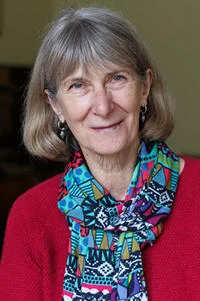
Who Cares in a Shrinking State? Responsibility and Respectability Reconsidered
19th November 2019, 12.30-1.45 & a further workshop from 2.15 till 4pm, FAW 9.05
Speakers: Professor Mary Evans (LSE Centennial Professor at the Department of Gender Studies Department of Gender Studies), Professor Beverley (III Research Theme Convenor and AFSEE Academic Advisor International Inequalities Institute), Dr Insa Koch (Associate Professor of Law and Anthropology Department of Law)
As the state in the UK shrinks its responsibility for social care who will provide for the children, the elderly, the less able and those who need care. You may have heard about the "care sandwich" as mothers have to give up work to care for their elderly family members as well as their very young family members and in between the sandwich of young and old is all the regular car that they disperse daily. We used to talk about women’s double burden of domestic and paid work, but this has extended radically. Not only are many women subject to a "triple whammy" through austerity cuts to supportive benefits, with BME women hit the hardest, they now have many more responsibilities as state services in education and health are also cut, and what was once part of the welfare state becomes "women’s work" once more. In this seminar Dr Insa Koch will discuss the nature of the shrinking state, drawing on the impact of the shrinking state on local populations from her empirical study, in the UK published as Personalizing the State: An Anthropology of Law, Politics, and Welfare in Austerity Britain. Professor Mary Evans who is undertaking a project on the nature of respectability. Mary asks "who is responsible?" and how? , what forms of deserving and undeserving distinctions are drawn between women when the state abdicates its responsibility. The event will be chaired by Professor Beverley Skeggs, academic advisor to the III Global Economies of Care research theme and she will be joined by the "Care Collective", a research group that aims to generate new challenges to the current caring politics. The lunchtime seminar will be followed by a meeting of the research theme to which people are also invited.

Superstar cities and left-behind places: A long-run perspective on U.S. interregional inequality
29th October, 12.30 to 1.45pm, FAW 9.05
Speaker: Dr Tom Kemeny (Visiting Fellow at the International Inequalities Institute)
Around 1980, interregional income inequality in the US began to grow, as it did in a wide range of other countries. In the US, some people moved to opportunity, newly concentrated in a limited subset of urbanized locations, but overall migration rates shrunk. As a consequence, many Americans have become stuck in places that offer few opportunities. This shift is economically important, and it also appears to be related to the recent upsurge in populist politics. And yet divergence is not a constant or necessary feature of the space-economy. Indeed, it strongly contrasts with patterns experienced during the mid-20th century, where people were more mobile and gaps between places diminished. And partly because many of our core theories of urban growth and change are premised on the record of this earlier period, we face real challenges to explain what we see today, and to design policies that address the fallout. All of this points to an urgent need to (a) better understand the current moment, and in light of this (b) retheorize urban growth. In my talk, I will attempt to do both. I will propose a ‘structural’ theory featuring regular, alternating patterns of convergence and divergence. Major, disruptive technology shocks – or industrial revolutions – regulate this ‘wave’ pattern, increasing the gaps between places, and then later diminishing them. I will sketch mechanisms that could generate these facts, and provide descriptive evidence in support of these ideas by analyzing information on US regional economies since 1860.

Between Communism and Capitalism: Long-Term Inequality in Poland, 1892-2015
15th October, 12.30 to 1.45pm, FAW 9.05
Speaker: Pawel Bukowski (Research Officer, LSE)How has Polish inequality evolved between communism and capitalism to reach one of the highest levels in Europe today? To address this question, we construct the first series on the long-term distribution of income in Poland by combining tax, household survey and national accounts data. We document a U-shaped evolution of inequalities from the end of the 19th century until today: (i) inequality was high before WWII; (ii) abruptly fell after the introduction of communism in 1947 and stagnated at low levels during the whole communist period; (iii) experienced a sharp rise with the return to capitalism in 1989. Between 1989 and 2015 the top 10% income share increased from 23% to 35% and the top 1% income share from 4% to 13%. Frequently quoted Poland’s transition success has largely benefited top income groups.
We find that inequality was high in the first half of the 20th century due to strong concentration of capital income at the top of the distribution. The secular fall after WW2 was largely to a combination of capital income shocks from war destructions with communist policies both eliminating private ownership and forcing wage compression. The rise of inequality after the return to capitalism in the early 1990s was induced both by the rise of top labour and capital incomes. We attribute this to labour market liberalisation and privatisation. However, the strong rise in inequality in the 2000s was driven solely by the increase in top capital incomes, which is likely related to current globalization forces. Yet overall, the unique Polish inequality history speaks about the central role of policies and institutions in shaping inequality in the long run.
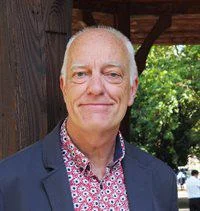
The life and times of categorical inequality: class, gender and race in long term historical perspective
1st October, 12.30 to 1.45pm, FAW 9.05
Speaker: Professor Mike Savage (Director, International Inequalities Institute, LSE)
Chair: Dr Luna Glucksberg (Research Fellow at the International Inequalities Institute)This talk will reflect on the current ‘state of the debate’ about inequality. Although inequality is increasingly widely recognised to be a major concern which requires the kind of interdisciplinary initiatives that the III facilitates, a number of major challenges have come to the fore. This talk will reflect on one of these, how to link analyses of income and wealth distributions, which the economists have brought to the fore, with the categorical analyses of gender, race and class which other social scientists emphasise, and which raise major questions of political action. Drawing on Mike Savage's forthcoming book, The challenge of inequality: social change and the return of history I will speculatively lay out recent trends in inequality along axes of gender, race and class to show how they both disrupt, but also might empower, an overarching account of the intensification of inequalities.

Can public consensus identify a ‘riches line’?
Speakers: Dr Katharina Hecht (LSE, III) and Abigail Davis (Loughborough University)
21st May, 12.30-1.45pm, Fawcett House (FAW), Room 9.05
While frequently discussed in the media and in popular discourse, so far not much attention has been paid to defining, and analysing public views towards, ‘the rich’ or ‘riches’ in the social sciences. In addition to addressing a gap in our research knowledge, this pilot study addresses an urgent everyday issue, at a time in which resources accruing to the very rich are ever-increasing, while many are suffering the consequences of austerity policies, including extreme food and housing insecurity.
There is a well-established research tradition that aims to build a definition of a Minimum Income Standard (MIS) based on public consensus. Our novel study seeks to draw on public consensus methods, but deploy them at the other end of the income and wealth distributions, to understand how ‘riches’ or ‘the rich’ might be defined.
The study is a first step in exploring whether members of the public in London can reach a consensus about whether there is a threshold above which people could be considered to have too much, akin to how a poverty line signifies a threshold below which people do not have enough. Specifically, it aims to analyse whether a negotiated consensus among groups of members of the public on different levels of income, can develop such a concept. The findings provide novel insights into people’s views on what it means to have high levels of income and wealth and what different levels of richness entail (description), as well as unpacking people’s judgements about different forms of wealth and the uses to which it is put (normative evaluation).
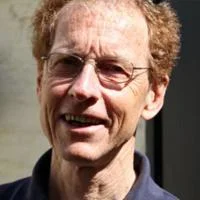
The open-and-shut case of inequality
Speaker: Dr Jan Vandemoortele7th May, 12.30-1.45pm, Fawcett House (FAW), Room 9.05
The latest evidence shows that people in countries with low inequality are amongst the happiest and healthiest. In those countries, economic growth, education and social mobility tend to be high, whilst social ills such as gender discrimination, crime, fraud, corruption, alcohol and drugs abuse, bullying at school are less. People there tend to use less water, produce less waste and emit less CO2; thus leaving a smaller ecolo gical footprint. Hence, the world is not facing two separate challenges, one ecological and the other socioeconomic; but one complex and inter-connected challenge in which inequality plays a central role. The impact of inequality on how people feel, reason and act is grossly underestimated. The first step in reducing inequality is to fully understand its harmful effects, rather than to deepen our analysis of its causes and potential remedies. The article aims to contribute to such increased awareness. It draws together the latest evidence from a wide range of disciplines. It clarifies four conceptual dichotomies that are important in elucidating the debate about inequality. It reviews the concerns expressed by historians, philosophers and political scientists about inequality. In concluding, it makes a concrete proposal for enhancing our comprehension of the impact of inequality.

A tale of two towns: what the fortunes of Oldham and Oxford tell us about spatial inequality in Britain
26th March 2019Speaker: Dr Mark Fransham (International Inequalities Institute, LSE)

Adventures in Anarcolandia: the complexities and contradictions of transnational anarchist social movements
12th March 2019Speaker: Dr Erica Lagalisse (International Inequalities Institute, LSE)
Contemporary anarchist activists aim to manifest non-hierarchical social relations within their own social milieu, as well as topple the social hierarchies that characterize the dominant society, such as white supremacy, patriarchy, and capitalism: Anarchists observe the importance of "means" matching "ends" and work to bring about "a new world in the shell of the old". I argue however that anarchist activism in North America does not entirely subvert the logic of neoliberalism. Colonial property relations, bureaucratic legalism, and statistical fantasies of the sovereign state (among other linear equations) continue to inflect anarchist politics and self-making projects: the rhizome is re-territorialized.
My multi-sited ethnography explores anarchist networks that cross Québec, the United States and Mexico to demonstrate how anarchist practice is mired in contradiction, especially to the extent that this practice is shaped by notions of self and property (propriety) dominant in English-speaking North America. My comparative study illustrates similarities and differences among diverse anarchist scenes, throwing into relief the particular practices of university-educated Anglo American leftists, and draws on anthropological, feminist and critical race theory to show how they have preempted the black feminist challenge of "intersectionality" by recuperating its praxis within the logic of neoliberal self-making projects and property relations, a particular economy of value in which certain identities are foregrounded and others—especially that of class—are effectively concealed. Ultimately the anarchists are presented as a limit case: even within their "autonomous" everyday practices, the propertizing self prevails in what I call the game of "good politics" - the Bridge of all prestige games, and one which structures much contemporary critical academic scholarship as well.

How the Reification of Merit Breeds Inequality: theory and experimental evidence
Tuesday, 26th February, 2019Speaker: Dr Fabien Accominotti (Department of Sociology, LSE)

The Missing Billions: Measuring Top Incomes in the UK Tuesday, 5th February, 2019
Speaker: Dr Andrew Summers (Department of Law, LSE)

The Paradox of Inequality: income inequality and belief in meritocracy go hand in hand
Tuesday, 22nd January, 2019Speaker: Dr Jonathan Mijs (International Inequalities Institute, LSE)
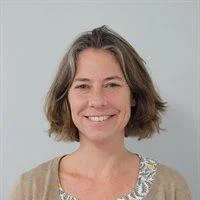
The ‘Essex Hijab’. Fitting into the diverse city: social exclusion, symbolic boundaries and convivial labour in East London
Tuesday, 4th December, 2018Speaker: Dr Susanne Wessendorf
This paper addresses how long-established ethnic minorities in East London react to new immigration. By drawing on ongoing ethnographic fieldwork, it looks at how long-term experiences of stigmatisation among ethnic minorities impact on their perceptions of newcomers, and how, in the context of socio-economic precariousness, these perceptions are characterized by a combination of empathy and resentment.

Experiences of money from the perspectives of London’s ‘rich’ and ‘poor’
Tuesday, 20th November, 2018Speakers: Dr Kate Summers and Dr Katharina Hecht

Tackling ethnic disparities using websites
Tuesday, 30th October, 2018Speaker: Zamila Bunglawala, Visiting Fellow III and Deputy Director - Strategy and Insight, Race Disparity Unit, Cabinet Office

Inclusive Growth in cities: a sympathetic critique Tuesday, 16th October, 2018
Speaker: Dr Neil Lee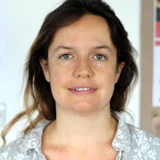
Ethnographic exploration of the socio-economic transformation of the Basque country
Tuesday, 2nd October, 2018
Speaker: Dr Luna Glucksberg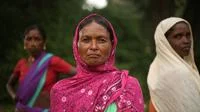
Gender Inequalities in India
Tuesday, 29th May 2018
Speakers: Dr Naila Kabeer and Nivedita Narain (PRADAN)
Recasting the UNDP's Human Development Measures
Tuesday, 8th May 2018
Speaker: Professor Sudhir Anand
Chair: Dr Aaron Reeves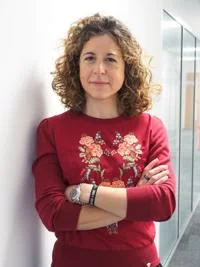
Great Expectations: Is the IMF turning words into action on inequality?
Tuesday, 1st May 2018
Speaker: Chiara Mariotti (Inequality Policy Manager, Oxfam)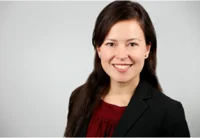
The Effects of Welfare Programs on Formal Labour Markets in Middle-Income Countries: Evidence from Conditional Cash Transfers in Brazil
Tuesday, 20th March 2018
Speaker: Dr Joana Naritomi (LSE International Development)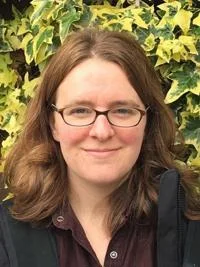
The stakes of trade policy: global and domestic inequalities
Tuesday, 20th February 2018
Speaker: Dr Sarah Goff (LSE Government)
Listen to the podcast episode
Selective schooling and its relationship to private tutoring: lessons from South Korea
Tuesday, 30th January 2018
Speaker: Dr Sonia Exley (LSE Social Policy)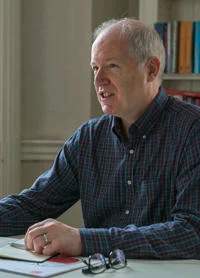
Income Inequality and Welfare Systems in the Yugoslav Successor States
Tuesday, 23rd January 2018
Speakers: Dr Will Bartlett (LSEE Research on South East Europe), Dr Nermin Oruč (Center for Development Evaluation and Social Science Research, Sarajevo), Dr Jelena Žarković Rakic (University of Belgrade) and Dr Gorana Krstić (University of Belgrade)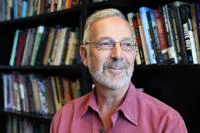
Economic and Racial Drivers of Toxic Inequality in the United States: Two Narratives, One Story
Tuesday, 16th January 2018
Speaker: Professor Thomas Shapiro (Brandeis University)
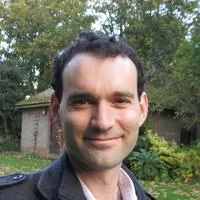
Inequality as Service
Tuesday, 28th November 2017
Speaker: Dr Paul Segal (King's College London; LSE III)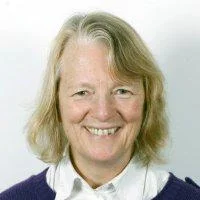
Can Social Landlords Make Private Renting Work Better?
Tuesday, 4th November 2017
Speaker: Professor Anne Power
Do Firms Manage Pay Inequality?
Tuesday, 24th October 2017
Speaker: Professor Paul Willman
The Decline and Persistence of the Old Boy: Private Schools and Elite Recruitment 1897-2016
Tuesday, 10th October 2017
Speakers: Dr Aaron Reeves (LSE III) and Dr Sam Friedman (LSE Sociology)
Chair: Professor Mike Savage (LSE III)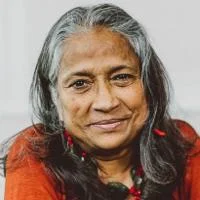
Inequalities Seminar: Intersecting inequalities and the Sustainable Development Goals: insights from Brazil
Tuesday, 9th May 2017
Speaker: Professor Naila Kabeer (LSE Gender Instittue and Department of International Development)
Inequalities Seminar: Post-Industrialisation in the East Midlands: ethnographic narratives from the communities that were thrown under the Brexit bus
Tuesday, 2nd May 2017
Speaker: Dr Lisa Mckenzie (LSE Sociology)
Health and Income Inequality Aversion: results from a UK survey experiment
Tuesday, 25th April 2017
Speaker: Dr Joan Costa-i-Font (LSE Social Policy and European Institute)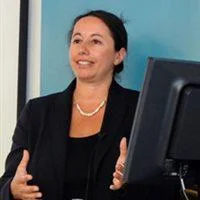
Dynamics of Democracy and Inequality in the context of Globalization
Tuesday, 21st March 2017
Speaker: Dr Dena Freeman (Senior Visiting Fellow in the Department of Anthropology, LSE and an Associate of the III)
Adressing recognition gaps: destigmatization processes and the making of inequality
Tuesday, 7th March 2017
Speaker: Professor Michele Lamont (Harvard University)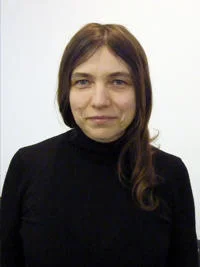
Older peoples' experiences of dignity and nutritional support during hospital stays
Tuesday, 21st February 2017
Speaker: Dr Polly Vizard (LSE CASE)
Regional Inequality and Preferences for Market-Promoting Land Law Reform: Kenya Pilot Study
Tuesday, 31st January 2017
Speaker: Professor Catherine Boone (LSE Departments of Government and International Development)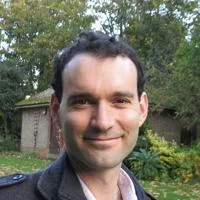
Who are the Global Top 1%?
Tuesday, 17th January 2017
Speaker: Dr Paul Segal (Senior Lecturer in Economics at Kings College London, Visiting Fellow at the III)
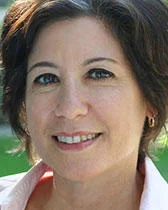
Support for Redistribution: preferences for reducing economic inequality in the US and Sweden
Tuesday, 29th November 2016
Speaker: Professor Leslie McCall (Northwestern University)
The Strength of Weak Performance: a relational theory of executive pay
Tuesday, 8th November 2016
Speaker: Professor Thomas A. DiPrete (Columbia University)
The Organizational Production of Earnings Inequalities
Tuesday, 25th October 2016
Speaker: Professor Donald Tomaskovic-Devey (UMASS)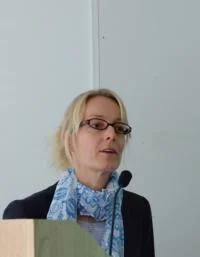
Top Incomes and the Gender Divide
Tuesday, 27th September 2016
Speakers: Professor Alessandra Casarico (Bocconi) and Dr Sarah Voitchovsky (University of Melbourne)